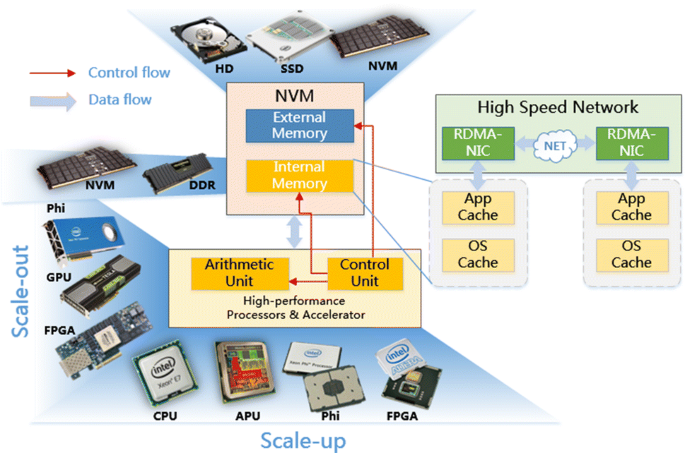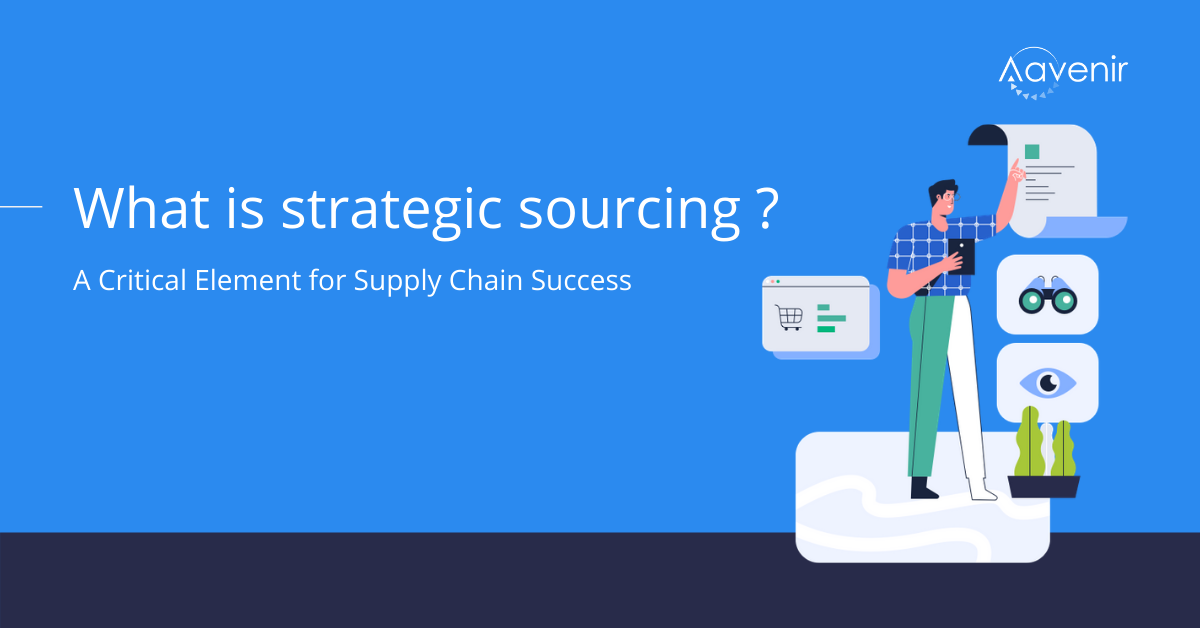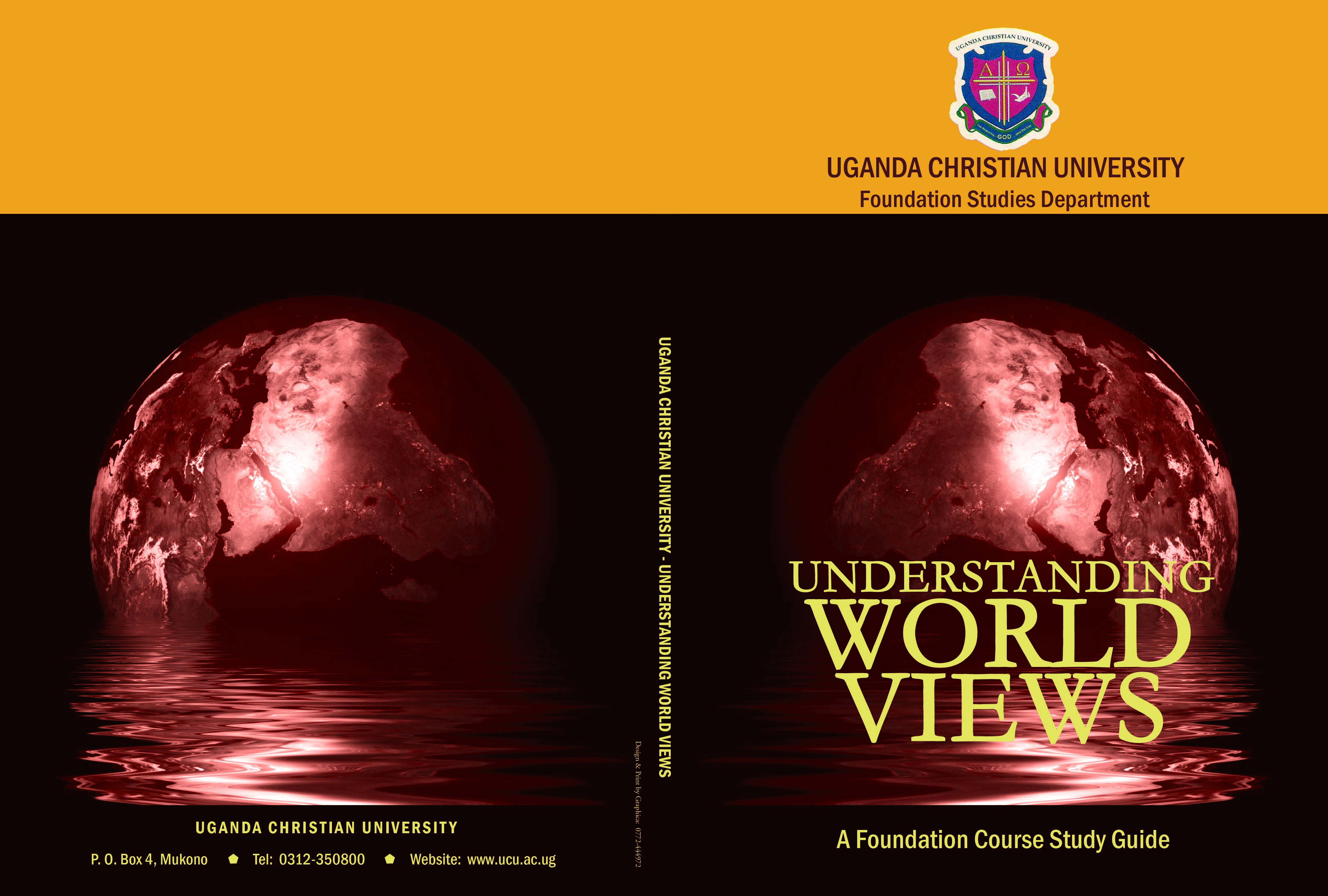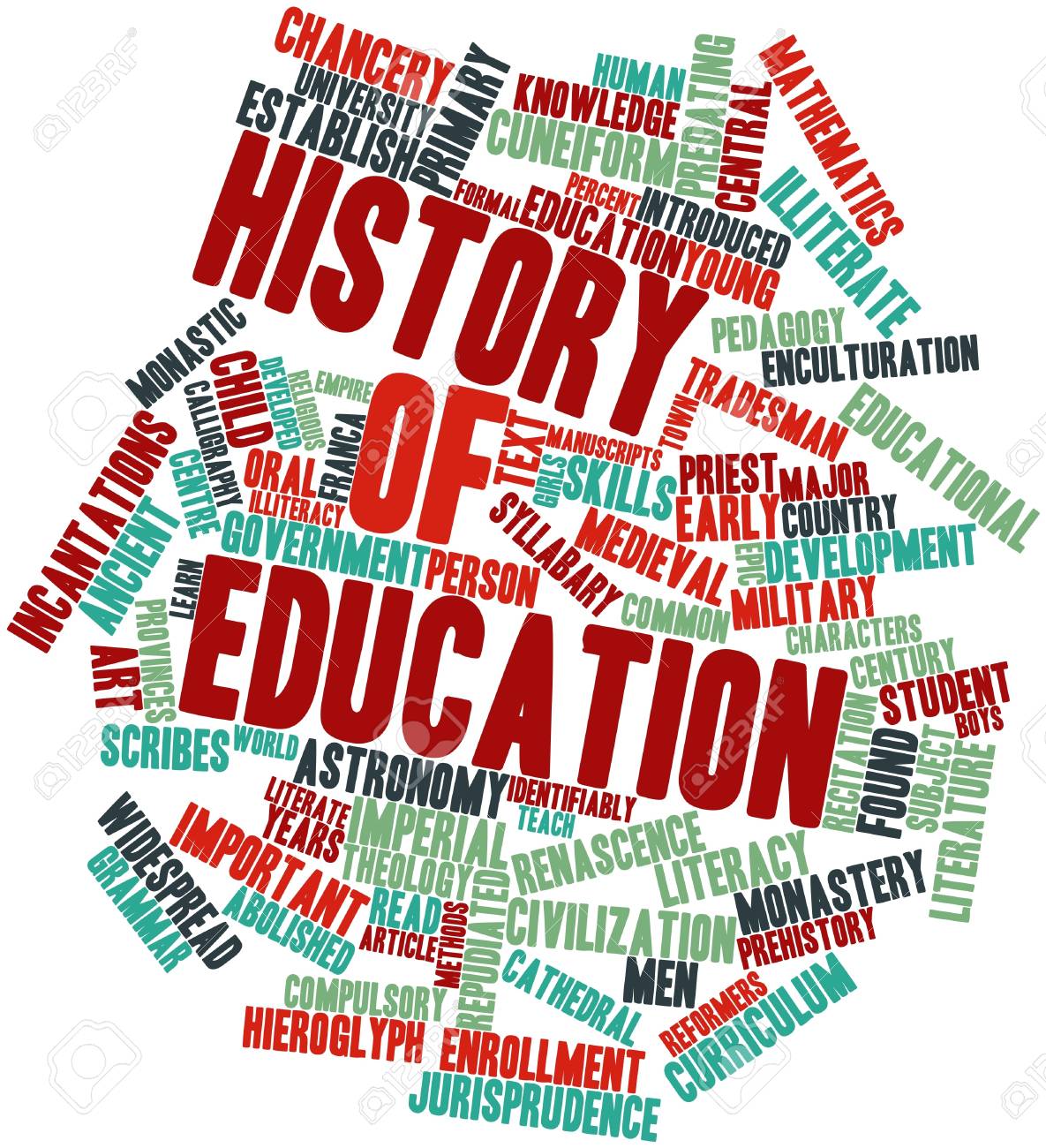
UCU eLearning Platform
Search results: 596

COURSE LEVEL: YEAR 3, SEMESTER 2 CREDIT UNIT: CU 3
TYPE OF COURSE: ELECTIVE
COURSE DESCRIPTION
During this practical course students learn how to layout newspaper pages electronically. It requires that pages conform to the principles of design already covered in the Fundamentals of Editing course, which is a pre-requisite for this paper. Adobe InDesign was selected for this course because of its wide usage in the Ugandan newspaper market. Students will work in groups to produce a newspaper as the final product for this class. BAMC 3105 Fundamentals of Newspaper Editing and Page Design is a pre-requisite.
OBJECTIVES
This course is aimed at forming an editor out of the student, especially for the print media. At the end of this course, students should be able to:
- Consolidate knowledge and skills acquired in BAMC 3105 Fundamentals of Newspaper Editing and Page Design.
- Work as a sub-editor in a print newsroom; and ably use Adobe InDesign software.
- Complete basic graphic design assignments.
- Teacher: Ann Mugunga
Mrs. Ndaru Proscovia
Mr. Nyolonga Colbert
Mr. Acidri Emmanuel Bilah
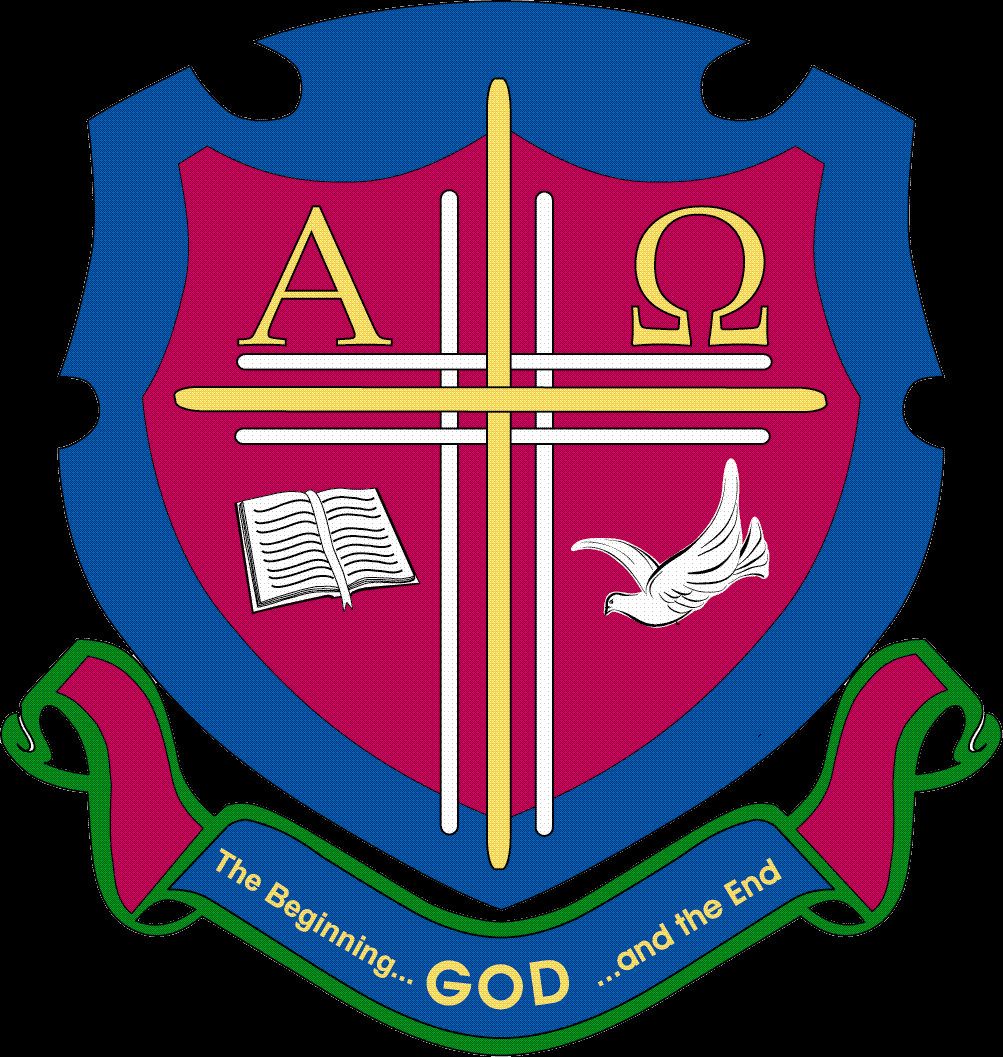
This is an advanced learning of Greek
Students are required to have finished Basic NT Greek1 and Basic NT Greek2
Students will learn sentence structure and move on exegesis and translation of NT sections
- Lecturer: Emmanuel MUKESHIMANA
Techniques of physical examination and history taking are time honored skills of healing and patient care. This course further develops and integrates the health assessment competencies of interviewing, performing and documenting comprehensive health histories and physical examinations into nursing education. It focuses on interviewing and health history, clinical reasoning, assessment and recording, and introduction to physical examination which are foundation aspects of health assessment. The students will apply the knowledge and skills acquired in facilitating nursing students’ learning in health assessment as a clinical foundation course.
- Grace: Mary Grace NAKATE

This course unit is an advanced level of OT Hebrew.
Students are required to have covered level 1 and 2 of OT Hebrew
In this course unit students will cover
1. Verb construction and use
2. Exegesis and translation of OT sections
- Lecturer: Emmanuel MUKESHIMANA
Asio Annet
Mr. Oyo Silas
Computer systems in a network environment require significant expertise to administer, troubleshoot, and tune. This course presents the advanced tools and techniques needed to configure and to control (UNIX, Linux, Windows) machines and their peripherals. It then expands upon this information in a network environment. Finally, performance problems are discussed and a general methodology is defined for isolating/resolving performance problems.
This is a practical course designed to familiarize students with the Moodle interface.
- Teacher: Rev. Dr. Jessica Hughes
This is a practical course designed to familiarize students with the Moodle interface.
- Teacher: Rev. Dr. Jessica Hughes
This is a practical course designed to familiarize students with the Moodle interface.
- Teacher: Rev. Dr. Jessica Hughes
This is a practical course designed to familiarize students with the Moodle interface.
- Teacher: Rev. Dr. Jessica Hughes
This is a practical course designed to familiarize students with the Moodle interface.
- Teacher: Rev. Dr. Jessica Hughes
Mrs. Ojobiru Alice
Welcome to the African Political Economy and Governance Class. You have been thoughtfully accepted into this course. As such, defending Africa, articulating the concept of an African economy and politics; examining the governance systems that have birthed the African Economy are all explained. Also, you will be required to read assigned text books, articles, listen to videos and analyse multimedia content; as well as attend and discuss in class respectively.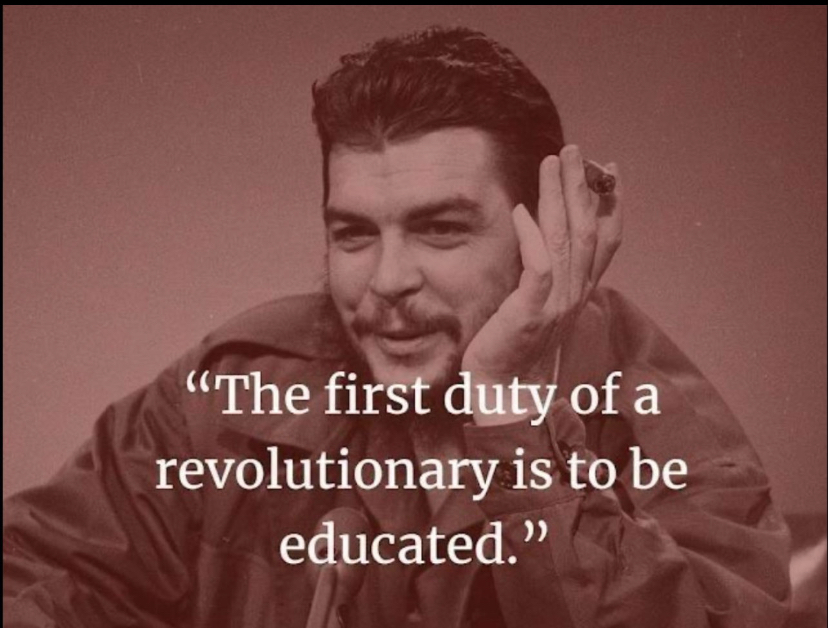
- Teacher: Feta SIMON
Rev. Driwaru Beatrice Fefia
Mr. Acidri Harry Adeoye
Course Description
Welcome!
This course unit covers the basics of agricultural policy, including economic welfare concepts, reasons for economic policies, factors that influence agricultural policies, the agricultural policy environment, and methods for developing national agricultural and food policy capabilities. It also discusses agricultural trade, including trade policy and the debate between free trade and protection, international trade in agricultural products, areas of competition and changes in comparative advantage, the connection between national and international policies, regional groupings, trade and economic development, and inter-regional and international trade agreements and policies.
This course describes the tissues and organs within the Abdomen, pelvis and perineum. These are parts of the body that deal mainly with nutrition, excretion and reproduction. The anatomical basis for radiological investigations and the safe surgical approaches will be explained.
- Teacher: Anthony NDYASIIMA
- Teacher: Anthony NDYASIIMA
This course unit aims at equipping students with in-depth regression analysis and related Techniques. The course will involve simple and multiple linear regressions (OLS); matrix representation of the regression model; statistical inferences (correlation analysis, T-test, F-test CHi2 test, ANOVA) for regression model; properties of OLS; diagnostics and remedies for multicollinearity and heteroskedasticity; diagnostics for model selection, variable selection, transformations (such as log, Box-Cox, etc.); appropriate Statistical packages (e.g. STATA) will be used in the course unit to demonstrate how to apply the Techniques on real data.
Model specification and data: developing a conceptual framework; types and sources of data, data mining, model specification and data generation; the mathematical Programming approach to policy analysis: the classical MP models, limitations of of MP models and extension to positive mathematical Programming, classification of mathematical Programming models commonly used in policy analysis, application in hypothesis testing, application in analyzing policy instruments and commodity policy, application in forecasting; econometric approach to policy analysis.
Classification of econometrics models, linear and none linear models, limited and censor-dependent variable approaches (logit, probit, tobit, and their extensions such as multinomial logit and probit etc.), system of equations or simultaneous equations, application in hypothesis testing, application in analyzing policy instruments and commodity policy, application in forecasting, the problem of causality in policy analysis, limitation of econometric models; impact assessment: propensity score matching, regression discontinuity designs, panel data to analyze with staggered entry.
Multivariate analysis· Introduction to Econometrics Preview
· Simple Linear Regression: Basic Concepts
· Simple Linear Regression: Estimation of Parameters
· Simple Linear Regression: Outliers
· Multiple Linear Regression: Basic Concepts
· Multiple Linear Regression: Estimation of Parameters
· Autocorrelation: Durbin-Watson Test Statistic
· Multivariate Regression
· Logistic Regression
· Polynomial Regression
· Autoregressive Model
· Vector Autoregressive Model
. Limited and censor-dependent variable approaches (logit, probit, tobit, and their extensions such as multinomial logit and probit etc.),
Detailed Course Content
|
Topic |
LH |
PH |
|
Simple and multiple linear regressions (OLS); matrix representation of the regression model; statistical inferences (correlation analysis, T-test, F-test CHi2 test, ANOVA) for regression model; |
4 |
|
|
Properties of OLS; diagnostics and remedies for multicollinearity and heteroskedasticity; diagnostics for model selection, variable selection, transformations (such as log, Box-Cox, etc.); |
4 |
18 |
|
Appropriate Statistical packages (e.g. STATA) will be used in the course unit to demonstrate how to apply the Techniques on real data. |
6 |
|
|
Model specification and data: developing a conceptual framework; types and sources of data, data mining, model specification and data generation; the mathematical Programming approach to policy analysis: |
4 |
|
|
Application in hypothesis testing, application in analyzing policy instruments and commodity policy, application in forecasting; econometric approach to policy analysis. |
4 |
|
|
Classification of econometrics models, linear and none linear models, limited and censor-dependent variable approaches (logit, probit, tobit, and their extensions such as multinomial logit and probit etc.), |
4 |
2 |
|
System of equations or simultaneous equations, application in hypothesis testing, application in analyzing policy instruments and commodity policy, |
8 |
|
|
Application in forecasting, the problem of causality in policy analysis, limitation of econometric models; |
4 |
|
|
Application in forecasting, the problem of causality in policy analysis, limitation of econometric models impact assessment |
4 |
|
|
propensity score matching, regression discontinuity designs, panel data to analyze with staggered entry |
4 |
|
|
Multivariate analysis and experimental economics (factor analysis, principal component analysis, cluster analysis, discriminant analysis), auctions theory. |
4 |
|
Referencences:
Econometrics (2022) by Bruce Hansen, recommended but not required.
https://www.ssc.wisc.edu/~bhansen/econometrics/
Other complementary Texts include:
Angrist, J.D. and J. Pischke (2009): Mostly Harmless Econometrics - An Empiricists Companion, Princeton University Press
Amemyia, T. (1985): Advanced Econometrics, Blackwell
Berndt, E.R., The Practice of Econometrics: Classic and Contemporary. Addison-Wesley, 1991.
Chow, G. C. Econometrics. McGraw Hill, 1983.
Cameron, A. C. and Travedi, P.K. (2005): Microeconometrics – Methods and Applications, Cambridge University Press
Davidson, R. and McKinnon, J.G. (1993): Estimation and Inference in Econometrics, Oxford University Press
Drhymes, P. (1994) Topics in Advanced Econometrics, Vol 2: Linear and Nonlinear Simultaneous Equations, Springer Verlag
Green, W.A., Econometric Analysis, 8th edition, Prentice Hall.
Goldberger, A. S., A Course in Econometrics. Harvard University Press, 1991.
Hayashi, F. (2000). Econometrics. Princeton: Princeton University Press
Malinvaud, E. Statistical Methods of Econometrics, 3rd Edition. North-Holland, 1980.
Ramanathan, R. Statistical Methods in Econometrics, Academic Press, 1993.
Ruud, P.A. (2002): An Introduction to Classical Econometric Theory, Oxford University Press.
Sargan, J. D. Lectures on Advanced Econometric Theory. Basil Blackwell, 1988
Wooldridge, J.M . (2002): Econometric Analysis of Cross-Section and Panel Data, MIT Press.
Schervish, M.J. (1995): Theory of Statistics, Springer Verlag
Spanos, A. Statistical Foundation of Econometric Modeling. Cambridge University Press, 1986.
Theil, H. (1971): Principles of Econometrics, Wiley
White, H. (2000): Asymptotic Theory for Econometricians (Revised Edition), Academic Press
Zellner, A. An Introduction to Bayesian Inference in Econometrics. Wiley-Interscience, 1996.
Gurmu, Shiferaw, and Pravin K. Trivedi,
(1996)"Excess Zeroes in Count Models for Recreational Trips." Journal
of Business and Economics Statistics 14: 469-477.
Blundell, Richard, Rachel Griffith, and Frank Windmeijer, (1984)"Individual Effects and Dynamics in Count Data Models," London: Institute for Fiscal Studies Working Paper No. W99/3 (1999).
Hausman, Jerry A., Zvi GriliLHes, and Bronwyn H. Hall, "Econometric Models for Count Data with an Application to the Patents-R&D Relationship," Econometrica 52: 909-938.
Hall, Bronwyn H., Zvi GriliLHes, and Jerry A. Hausman, (1986)"Patents and R&D: Is There a Lag?" International Economic Review 27: 265-283.
Montalvo, Jose Garcia, (1993) "GMM Estimation of Count Panel Data Models with Fixed Effects and Predetermined Instruments," Journal of Business and Economic Statistics 15: 82-89.
LHamberlain, Gary, "Multivariate Regression Models for Panel Data, (1982)" Journal of Econometrics 18:5-46.
Exercise Collections:
P. C. B. Phillips and M. R. Wickens, Exercises in Econometrics, Vol. I & II. Allen/Ballinger, 1978.
K. Abadir and J. Magnus, Econometric Exercises Vol 1: Matrix Algebra. Cambridge University Press, 2005.
Section 1: Assessment Details
-
Grading Format and Weighting:
This assignment will be graded out of 10 and contributes to your continuous assessment mark. -
Due Date:
15th November 2025 by 23:59 -
Late Submission Policy:
No late submissions will be accepted unless accompanied by valid documentation. -
Course Learning Outcomes:
Upon completion of this assignment, students will be able to:-
Apply non-parametric statistical methods using STATA.
-
Conduct and interpret Chi-square tests for independence.
-
Prepare and present results in the format of a scientific journal article.
-
Translate continuous variables into categorical variables for non-parametric analysis.
-
Integrate and update prior analytical work coherently.
-
-
Type of Submission:
Individual assignment submitted as part of a cumulative journal article. -
Format:
-
PDF
-
Journal article style (continuous from previous assignments)
-
-
Length:
Approx. 2,000–2,500 words (excluding tables, figures, and references). -
Reference Style:
Use APA (7th Edition) for all citations and references. -
Naming Conventions:
Save the file as:StudentID_Assignment5_ChiSquare.docx
(e.g., 20250065_Assignment5_ChiSquare.docx) -
How to Submit:
Upload the completed document to the class Moodle portal as directed. Notify your lecturer or class representative if you have any problems.
Section 2: Purpose
-
Context:
This assignment extends your learning from Assignments 2–4, moving from parametric tests to non-parametric statistics. It introduces the Chi-square test for independence, which is vital for analyzing relationships between categorical variables. This analysis is particularly useful when working with survey data, health outcomes, and other categorical measures.By the end of the assignment, you will gain hands-on experience in preparing categorical datasets, performing chi-square analysis in STATA, and interpreting relationships between variables relevant to your field of study.
-
Description:
Students will use STATA to test the association between two categorical variables using the Chi-square test for independence. They will build on their existing dataset and journal article, converting their chosen dependent variable into a categorical form. Results must be integrated into the ongoing journal article, addressing all previous feedback. -
Task:
-
Review your previous journal article (Assignments 2–4) and correct any issues noted in feedback.
-
Using your chosen dependent variable from the Google Sheet (link here):
-
Convert your dependent variable from a continuous/numerical measure into a categorical variable (e.g., BMI → “Underweight,” “Normal,” “Overweight”).
-
Select one categorical independent variable (e.g., Gender, Year of Study, Living Arrangement).
-
Using STATA, perform a Chi-square test for independence between the two categorical variables.
-
-
Clearly report your:
-
Hypothesis (Null and Alternative)
-
STATA output (including observed and expected frequencies)
-
Chi-square statistic, degrees of freedom, and p-value
-
Interpretation of results (indicating whether a significant relationship exists)
-
-
Add this analysis to your journal article, under the Results and Discussion sections.
-
Include relevant tables, graphs, and references.
-
Ensure that your final document integrates results from Assignments 2, 3, 4, and 5 coherently.
-
Section 3: Learning Technology Tool Requirements
-
Required Tools:
-
STATA (Version 16 or higher) – for statistical analysis
-
Microsoft Word – for article preparation
-
Google Sheets – to confirm your dependent variable
-
Moodle – for file submission
-
Section 4: Supplementary Documentation
-
Associated Course Materials:
-
Lecture slides on Non-parametric tests and Chi-square analysis
-
Practical STATA guide for Chi-square tests
-
Dataset and coding instructions from previous assignments
-
Example journal articles applying Chi-square tests in your area of study.
-
-
Rubric:
| Assessment Criteria | Description | Weight (%) |
|---|---|---|
| Data preparation and correct variable conversion | Appropriate recoding of numerical data into categories | 15% |
| Execution of Chi-square analysis in STATA | Correct application of the Chi-square test and output interpretation | 25% |
| Interpretation of results | Clear explanation of findings and implications for nutrition/health | 25% |
| Integration with prior assignments | Smooth continuation from earlier journal submissions and incorporation of feedback | 15% |
| Journal article presentation | Logical structure, clarity, and adherence to academic conventions | 10% |
| Proper referencing and formatting | Accurate use of APA referencing and presentation | 10% |
-
Examples:
A sample Chi-square analysis output and interpretation will be demonstrated during practical sessions. -
Academic Integrity:
Each student must perform and submit their own work. Sharing results, copying code, or using others’ interpretations will be treated as academic misconduct. -
Avoiding Plagiarism:
For best practices in citation and originality, consult:
👉 Preventing Plagiarism – Plagiarism.org
- Teacher: Martin MUTAMBUKA
- Teacher: Patrick LUGEMWA
Hello and welcome to the Audio production class. We look forward to getting to know each of you and learning together. During the course of the study semester we will together cover these key broad areas:
● Nature of sound and how it is transmitted.
● Audio facilities/equipment-both analog and digital
● Radio production tools.
● The process of producing good quality audios
In order to ensure we progress in an orderly way, everyone will be expected to read, listen to assigned audio materials and write about them, and present audio projects. I encourage you to go beyond assigned materials as the more broadly you read, the more sense this course will make. The end will be a submission of an audio project.
Teaching and learning methods will be varied and will include face to face and online lectures, small group discussion, independent study and presentation.
DEAR DBA 2 STUDENTS
The course is designed to provide in-depth study of auditing principles, concepts, and practices as it applies mainly to business and investors. Further, it will provide the student with a working knowledge of auditing procedures and techniques, standards, ethics and legal environment, statistical audit tools as well as audit reports.
Mr. Asiku John
This course is designed by the Faculty of Science and Technology to equip all university students with the basic knowledge and skills in computing. It seeks to demystify computers and their use through lectures and practical lab sessions.
It introduces students to the basic concepts of Information Technology, the use of the Internet and office applications like a word processor and spreadsheets.
The course is spread over a period of 14 weeks which is the order this Student Workbook follows. You are required to follow through each week and attempt exercises at the end of each week.
- Lecturer: Emmanuel ISABIRYE
- Lecturer: Samson Kaggwa S
- Lecturer: Paul Kisambira
- Lecturer: Samuel Lubowa
- Lecturer: Henry SSEGUYA
- Lecturer: Dinah Wobuyaga
This course is designed by the Faculty of Engineering, Design and Technology to equip all university students with the computing knowledge and skills for personal use, the workplace, and society at large. It teaches concepts that are relevant in this digital age.
It uses blended learning, face-to-face, and practical sessions to pass across the knowledge. It demystifies computers and provides students with an added advantage for this digital world we live in.
The students will be introduced to the basic concepts of Information Technology, the use of the Internet and office applications like a word processor, presentation and spreadsheets, and the amazing things computers are doing in their field of study. Each week has exercises that help students to appreciate the theoretical concepts better. Other non-technical skills you will learn in this course include; thinking skills, communication skills, research skills, collaboration skills, and self-management skills.

This course is designed by the Faculty of Science and Technology to equip all university students with the basic knowledge and skills in computing. It seeks to demystify computers and their use through lectures and practical lab sessions.
It introduces students to the basic concepts of Information Technology, the use of the Internet and office applications like a word processor and spreadsheets.
The course is spread over a period of 14 weeks which is the order this Student Workbook follows. You are required to follow through each week and attempt exercises at the end of each week.
- Lecturer: Sabitti Gonza

This is a biblical language course of the New Testament.
Students are required to be familiar with Alphabet in writing and reading.
Students will be fully in basic grammar for nouns
- Teacher: Emmanuel MUKESHIMANA

This is a continuation of biblical Greek studied last semester.
Strictly, a student who has not learnt Greek one is not supposed to enroll in this course unit.
The main focus of this course unit is on:
1. Declension
2. Verbs
3. Short Bible verses translation

This is a biblical language course of the New Testament.
Students are required to be familiar with Alphabet in writing and reading.
Students will be fully in basic grammar for nouns
- Lecturer: Emmanuel MUKESHIMANA

This course unit is the basic Old Testament Hebrew, it is the beginning of Hebrew language therefore students are required to be attentive on:
1. Hebrew alphabet in writing and pronunciation
2. Vocabulary
3. Noun structure
- Teacher: Emmanuel MUKESHIMANA

This course unit is the basic Old Testament Hebrew, it is the beginning of Hebrew language therefore students are required to be attentive on:
1. Hebrew alphabet in writing and pronunciation
2. Vocabulary
3. Noun structure

This course unit is the basic Old Testament Hebrew, it is the beginning of Hebrew language therefore students are required to be attentive on:
1. Hebrew alphabet in writing and pronunciation
2. Vocabulary
3. Noun structure
- Lecturer: Emmanuel MUKESHIMANA
- Lecturer: Susan Kharono
Great Literature reflects and interprets universal human experience, and this course will examine the Bible specifically from a literary perspective. This course will introduce students to the literary qualities of the Bible. Students will be encouraged to appreciate and analyze the poetic and narrative qualities of some Biblical texts. It will examine how universal stories, themes, metaphors and characterizations surface in the Bible and explore the many literary forms and genres that are in it: poetry, narratives, epistles, proverbs, parables, satire, and visionary writing. The course is designed as an eclectic critical approach to the bible.
- Teacher: Lwanira CATHERINE
- Teacher: Stephen TUKWASIBWE
- Lecturer: Susan Kharono
- Lecturer: Innocent NDIBATYA
Brief Course Description:This course is designed to introduce nursing students to the research process, with emphasis on the development of a research problem statement. Quantitative and qualitative research problems and methods or approaches will be discussed. Evaluation and utilization of nursing research is considered in the context of professional nursing with a Christian Perspective
- Teacher: Elizabeth NAMUKOMBE
The law of business associations, also known as corporate or company law, is to facilitate students to understand the main principles, rules and practices governing the formation, operation, management, and dissolution of various forms of business organizations. The course also aims to enable students to appreciate Uganda's various business organizations, investment laws and procedures. These organizations can include corporations, partnerships, all forms of companies, and other entities through which individuals or entities conduct business activities.
Mr. Ajuaba David Baiko
Question one:
a. Select a real-world business or industry (e.g., agriculture, manufacturing, or technology). Describe a scenario where the business has to make a decision between two types of products or services. Draw a PPF for this scenario and discuss the potential opportunity costs and trade-offs involved.
b. Discuss how factors such as technological advancement or an increase in resources can shift the PPF. Use a graph to show the effect of such changes on the PPF for the chosen industry. How do these shift’s impact business decisions and economic growth?
Mr. Andabati Dan Robert
At the heart of this course is the question of how to conduct a robust scientific inquiry. You will learn the theoretical, conceptual and methodological issues underlying a good academic research conducted to guide business practice as well as extend existing body of knowledge.
- Teacher: Stephen Kyakulumbye
Mr. Dranduga Augustus
The Christian Ethics and Leadership course seeks to equip learners with the ethical foundations, principles, and practices essential for Christian leaders who aspire to embody integrity and spiritual maturity in professional business environments. It examines the relevance and substance of ethical thought and action from a Christian perspective, offering a deep exploration of how different worldviews give rise to contrasting moral values and visions.
By understanding these diverse ethical landscapes, learners will gain insight into the inner conflicts they may face when striving to live in accordance with Christian teachings. The course sets out specific issues that Christians need to confront and these are discussed in light of biblical teaching and practice. Through a biblical lens, it addresses specific ethical issues that Christian leaders must navigate in their professional lives.
Ultimately, this course encourages learners to develop the wisdom, courage, and decisiveness needed to make responsible and faithful ethical choices, fostering leadership that reflects Christian values in every aspect of life.
This course unit covers Mission and Evangelism. it introduces students to the understanding of mission and its biblical foundations and subsequently focuses on evangelism as an aspect of mission
- Lecturer: Joel Obetia
Mr. Drani Ronald
Rev. Driwaru Beatrice Fefia
Mr. Afimani Moses
Hullo Class,
Welcome to Civil Procedure 1 (CP -1), in this Advent Semester 2023.
Civil Procedure is a subject that deals with the processes involved in resolving civil matters either through a formal court process or by alternative dispute resolution (ADR). Civil matters are basically non-criminal matters. Civil Procedure is therefore distinguished from Criminal Procedure.
The course will be taught in two semesters. The Advent Semester will cover CP 1, CP 2 which is an extension of the subject will be covered in the following semester.
CP1 will introduce you to theoretical and practical aspects of the subject, covering pre-trial aspects of civil matters, how to commence civil proceedings, parties to suits, cause of action, pleadings, issue and service of court process or documents, appearance, summons for directions etc. A reading list setting out the full scope of the subject will be availed.
The subject is intended to enable the student appreciate the fundamental processes of handling of civil matters. The learning outcomes are set out in the reading list.
The course will be assessed through course work assignment(s) (30%) and a final examination (70%).
"Procedure is a hainmainden of justice" the course will enable the students appreciate the role of rules of procedure in the administration of justice.
Hullo Class,
Welcome to Civil Procedure 1 (CP -1), in this Advent Semester 2023.
Civil Procedure is a subject that deals with the processes involved in resolving civil matters either through a formal court process or by alternative dispute resolution (ADR). Civil matters are basically non-criminal matters. Civil Procedure is therefore distinguished from Criminal Procedure.
The course will be taught in two semesters. The Advent Semester will cover CP 1, CP 2 which is an extension of the subject will be covered in the following semester.
CP1 will introduce you to theoretical and practical aspects of the subject, covering pre-trial aspects of civil matters, how to commence civil proceedings, parties to suits, cause of action, pleadings, issue and service of court process or documents, appearance, summons for directions etc. A reading list setting out the full scope of the subject will be availed.
The subject is intended to enable the student appreciate the fundamental processes of handling of civil matters. The learning outcomes are set out in the reading list.
The course will be assessed through course work assignment(s) (30%) and a final examination (70%).
"Procedure is a hainmainden of justice" the course will enable the students appreciate the role of rules of procedure in the administration of justice.
Mr. Yangu Godfrey Alibe
SHORT DESCRIPTION:
This course includes lecture components, experiential components and project components. The lecture material will be assessed through different assignments. The experiential component will be assessed through journal entries, presentations, class participation. The project-based component of your grade will be assessed through project evaluation.
SHORT DESCRIPTION:
This course includes lecture components, experiential components and project components. The lecture material will be assessed through different assignments. The experiential component will be assessed through journal entries, presentations, class participation. The project-based component of your grade will be assessed through project evaluation
- Teacher: Isaac NUWAMANYA
- Teacher: Faith SEBULIBA

Commercial graphic design is about and takes part in packaging and marketing by providing designs for labels, trademarks, colophons, and advertising materials (such as posters, catalogs, booklets, banners, prospectuses etc). Commercial graphic designers also provide such materials vital to industry as business forms and envelopes.
-Course Description:
This course covers aspects of various types of business organisations, such as companies, and how they interact with one another and with the outside world.
-Expected learning outcomes:
By the end of this course, a student should be able to:
i) Describe the documents and procedures required for the incorporation of companies and the establishment of partnerships and other related entities.
ii) Explain the legal status and liabilities of companies
- Teacher: Emmanuel KASHAIJA
- Teacher: Timothy NSEREKO
BDSE 1102: COMMUNICATION FOR DEVELOPMENT
This is an interactive and skill-centred course aimed at helping students develop oral communication and human relations skills and build confidence as interpersonal communicators and public speakers as well as effective listeners. It focuses on a communication approach and methods that help a community and individual meet their needs.
This course will be taken by Mr. Nyolonga Colbert who is currently based in Arua City.- Lecturer: Colbert NYOLONGA
COURSE LEVEL: YEAR 3, SEMESTER 2 CREDIT UNIT: CU 3
TYPE OF COURSE: ELECTIVE
COURSE DESCRIPTION
This course prepares students to take charge of communication operations and/or interventions in organisational or community settings. It equips students with the skills to initiate communication policy and strategy, oversee situation analyses, lead communication design and testing, oversee implementation of communication initiatives and ensure evaluation and re-design of the designed/implemented strategies.
COURSE OBJECTIVE
The objective of this course is to prepare students to take leadership of communication operations and/or interventions in organisational or community settings.
- Teacher: Ann Mugunga
COURSE LEVEL: YEAR 3, SEMESTER 2 CREDIT UNIT: CU 3
TYPE OF COURSE: ELECTIVE
COURSE DESCRIPTION
This course prepares students to take charge of communication operations and/or interventions in organisational or community settings. It equips students with the skills to initiate communication policy and strategy, oversee situation analyses, lead communication design and testing, oversee implementation of communication initiatives and ensure evaluation and re-design of the designed/implemented strategies.
COURSE OBJECTIVE
The objective of this course is to prepare students to take leadership of communication operations and/or interventions in organisational or community settings.
- Teacher: Ann Mugunga
Mr. Ndaru Proscovia
Course description
The course aims at providing understanding of the economic context of social work with special focus on grassroots social-economic structures, institutions and economic policy management. It emphasizes critical analysis and thinking of non-market aspects of the social economy in least developed economies taking into account community-based economic management initiatives world-wide.
It focuses on the interface between the “community economy” and the market economy while emphasizing the need to re-orient/direct policies towards communities as a tool for social development through pro-poor, inclusive economic growth. Much of the focus is on the transition from subsistence-based peasant economy to a fully monetized economy through policy-driven commercialization of agriculture and service facilities.
The student is expected to understand and explore the links between grass roots socio-economic change and the role of social workers in improving the well-being of citizens in general and specific vulnerable groups (VGs) in particular.
The main objective therefore is to assist social work professionals and other development professionals to learn how to build, manage and develop communities through effective and sustainable public and private action for poverty alleviation, employment creation, empowerment of marginalized groups and community solidarity using diversity of community development approaches.
The key questions addressed in this module include among others: How communities organize, assess and plan for development. How community development is defined by the cultural, social, political, and economic realities of particular countries and communities how and Gender sensitive and Microfinance lead to development, what good governance entails and how it leads to development , what is needed to integrate economic and social development among others
This course is designed with a focus on community health nursing; Environmental factors that affect health are discussed through community mobilization and assessment for health interventions at the community and family levels. Family theories and coping indices are explained in relation to home nursing of clients with chronic and or acute illnesses in their home environment. In addition, integrated PHC activities are implemented to address family and community health problems.
Mr. Arumadri Godwil
The course highlights key concepts in Geo-politics and foreign policy and national interest. It will examine the theoretical assumptions in foreign policy analysis, objectives of foreign policy, pre-requisites of foreign policy, the role of domestic and external factors in the foreign policy process, foreign policy as a tool in international relations and in the service of a state. This course targets, people from all academic and professional backgrounds, who are interested in promoting good relations between countries, and peaceful co-existence in the international system.
This is a research methodology course that focuses on developing researching and writing skills in Computer Science & Engineering Domain. As the Computer Scientist, software developer, software engineer, research requires multidisciplinary approach. Many of the concepts are borrowed from social science, Psychology, Statistics, and other domains. Here we investigate the empirical research methods for their applicability and suitability to a research problem. As each of them comes with their strengths and weakness, perhaps a feasible, mix of such methods should provide greater insight and understanding in order to derive useful contributions.
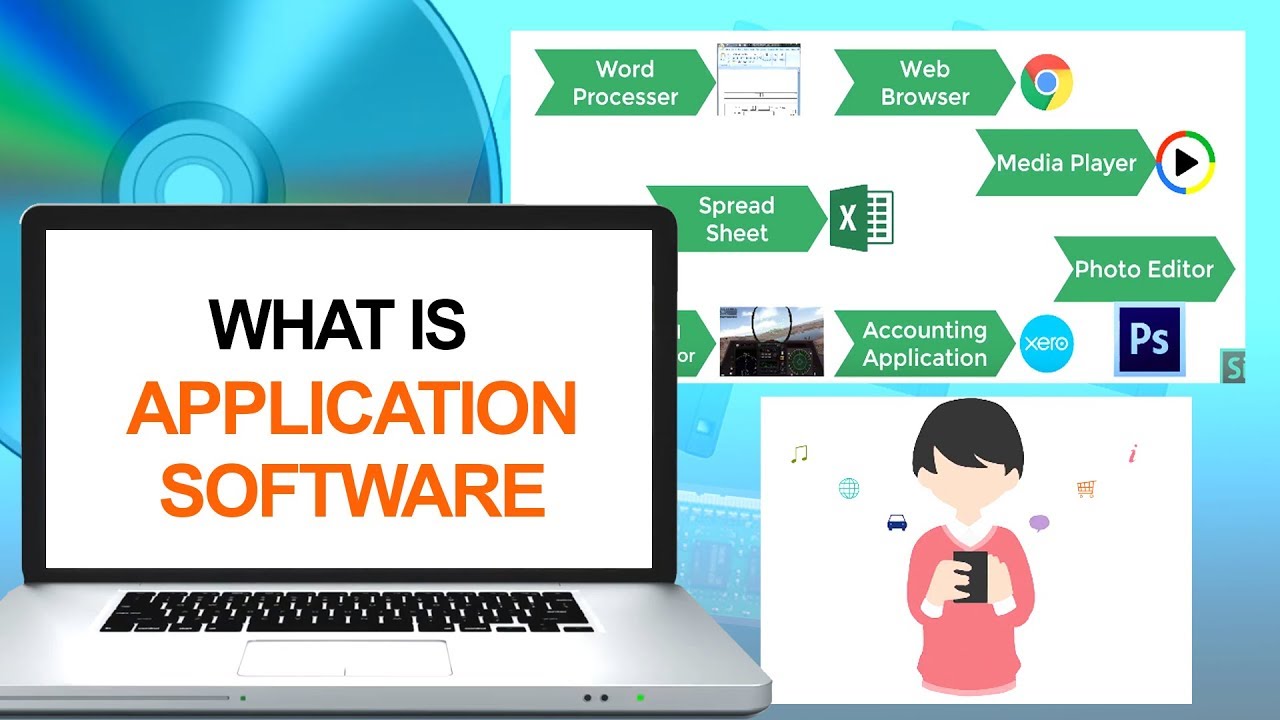
You are welcome to Computer Application II a course unit offered in the second semester of year one. In this course, students are exposed to an in depth understanding of computer applications like Access, excel, PowerPoint and publisher. The use of related applications in different operating systems will also be explored, computer Maintenance, 3D and virtual Reality.
- Teacher: Patrick LUGEMWA
Mr. Drani Ronald
Ajidiru Hope Sally
Mr. Orodrio Nelson

Mr. Wamusi Robert
Course Description:
The study of constitutional law attempts to give some idea of the fundamental and essential nature of the law that is basic to virtually all countries in the world. In this respect, it is concerned with both the substantive content as well as with basic aspects of law to its subsidiary elements, namely, legislation. It is also concerned with the link between basic law and the people at large (the question of human freedoms and individual rights). The main issues examined in the course are the instruments of state governance/arms of government (the Executive, Legislature, and Judiciary), the divisions between them, and their relationship to the ordinary citizens in the country. Students are thus urged to keep abreast with recent and past developments in the arena of statehood and political life in Uganda, the sister East African countries of Kenya, Tanzania, (as well as Rwanda, Burundi, and South Sudan), and the world at large. There is no set text for this course; however, it employs a multiplicity of sources. Every student MUST have a copy of the 1995 Constitution of the Republic of Uganda as amended.
Justification:
The successful completion of this course is a partial fulfillment of your bachelor of law degree. The course will offer skills, knowledge, and expertise to handle pertinent constitutional questions as a practicing or advocacy lawyer in the field. Furthermore since all laws are derived from the constitution, the skills and knowledge gained in this course will not only help you understand other vital legislation but also assist you to interpret the law more broadly.
Course Aim:
To help you appreciate issues of constitutionalism and good governance that forms the foundation of any successful society.
Course Objectives:
Through interactive lectures, group discussions, presentations, role-play, and research, you should be able to:
1. Develop an understanding of the fundamental constitutional issues of the day.
2. Analyze and distinguish various constitutions and determine their suitability for each given society.
3. Recognize a constitutional problem and suggest a relevant solution.
4. Develop an appreciation of how the law is formulated.
Analyze the 1995 Constitution and its amendments in line with fundamental principles.| Ms Mukeonzia Christine |
Mr. Dokcen Charles
Mr. Asiku Kiss Kizza
Mr. Asiku Kiss Kizza
Mr Yangu Godfrey
Curriculum design is one of the essential MEDAP courses that are organized for and excellently administered by UCU, with intent to enable beneficiaries become more relevant through additional competences while dealing with curricular issues in their educational institutions and possibly at the system level. This course is meant to develop your skills in analysising curricular at the classroom level and system level. You will also be enabled review and develop curriculum at the National level. The elements that form the curriculum will be reviewed and contextualised at all levels. you will review the theories and models of curriculum design and practice the curriculum development process, implementation and evaluation of different curricula
- Teacher: Patrick LUGEMWA

In this course, you will be exposed to a multidisciplinary domain that uses scientific methods, processes, algorithms, and systems to draw knowledge and insights from unstructured data. Students will explore the theoretical issues, methods, tools and problems that relate to data-rich issues in the humanities, social sciences, and sciences. Students will learn the core concepts of inference and computing, while working hands-on with real data including humanities data, social science data (ex. spatial data and social networks), and scientific data. We will examine how data analysis technologies can be used to improve decision-making within the liberal arts disciplines, as well as ethical implications.

Understanding how database systems are designed, implemented and
maintained is very essential in this Information age since databases are
now the underlying framework of information systems, and have
fundamentally changed the way many organizations operate.
- Lecturer: Mercy AMANIYO
 What is Management?
What is Management?
This course will provide students with the knowledge required to understand and
troubleshoot digital electronic circuits.
At the end of this course, a student will be able to;
• understand the basics of digital circuits.
• design different types of digital logic circuit.
• distinguish between analog and digital systems.
• identify the various digital ICs and understand their operation.
• apply Boolean laws and K-map to simplify the digital circuits.
• understand the function of elementary digital circuits under real and simulated
environment.
The course is compulsory to all postgraduate
students of the Department. It is
designed to provide students with an understanding of the theoretical and
practical principles of digital
information systems and services. The course will focus on critical issues surrounding the development of digital information systems and services, and their contents
in digital environments.
Topics that will be covered in the course include digital information resources and services, digitization of
non-digital materials, library automation, open source software, electronic resource
management, management of information overload,
search strategies, digital
preservation, technological skills and training requirement for the digital work environment
among others
- Teacher: A kukundakwe
- Teacher: Faith MBABAZI
- Teacher: Eva AKUGIZIBWE
Disaster management as a course of study introduces participants to the complex interaction between disaster and development, and relief development assistance programs of humanitarian organizations. It intends to lead students from disaster response strategies and programs to alternative strategies and directions in disaster mitigation and preparedness. It is thus expected to provide participants with relevant knowledge on disaster management to enable and facilitate communities appreciate sustainable management practices which enable them to contribute to sustainable development. The content of the course includes: definition, types and disaster management cycle, (mitigation, preparedness, response and recovery), education and public awareness. This course will enable students to develop an awareness of the chronological phases of natural disaster response and refugee relief operations; and understand how the phases of each are parallel and how they differ.
Angukoru Christine
Rev. Ruhama Dennis Onzima
Knowledge and understanding
The course provides a unified treatment of economic policy, introducing the students to a rigorous analysis of its
main topics in order to help the students to build a solid background in economic policy and to become familiar
with new methodologies.
Knowledge and applied understanding
The course provides students with the economic knowledge to enable them to understand major policy issues
in the twenty-first century. By the end of course the student should have an understanding of theoretical
economic models and their implications for economic policy and planning, mainly macroeconomic and labour market policies;
to be able to apply an analytical framework to explain the effects of monetary and fiscal policy on
macroeconomic performance, economic crises, financial and fiscal stability, and income and wage distribution.
CONTENTS
Modern Macroeconomics: A review of methods and tools: IS-LM-MP framework, time series econometrics, and Dynamic General
Equilibrium models. Great Moderation and macro policy. The Great Recession. Budget Deficits and Fiscal Consolidations. Labor
Market Policy: Wage distribution, minimum wage; Unemployment Insurance in OECD countries and the impact on wages,
unemployment, and productivity. International Macroeconomic Policy.
Lecture notes, as the main reference for this course, will be provided prior to the lecture. There are other supplementary readings
from academic journal articles, books, and policy analysis and reports which will be accessible in the course website.
TEXTBOOKS
• David Romer. 2000. "Keynesian Macroeconomics without the LM Curve". Journal of Economic Perspectives, 14(2): 149-169.
• Ben Bernanke. 2004. "The Great Moderation". Remarks at the meetings of Eastern Economic Association, Washington DC.
• Reinhart, Carmen, and Kenneth Rogoff. 2009. "The Aftermath of Financial Crises" in "This Time is Different: Eight Centuries
of Financial Folly"
• Diamond, D. and Philip Dybvig. 1983. "Bank Runs, Deposit Insurance, and Liquidity" Journal of Political Economy. 91(3): 401-
419.
• Tressel, Hierry; Wang, Shengzu; Kang, Joong Shik, and Jay Shambaugh. 2014. “Adjustment in Euro Area Deficit Countries:
Progress, Challenges, and Policies". IMF working paper.
• Jay C. Shambaugh. 2012."The Euro's Three Crises". Brokkings papers on economic activity. 157-187.
• Gauti B. Eggertsson. 2010. "What Fiscal Policy is Effective at Zero Interest Rates?" NBER Macroeconomics Annual.
| Mr Acidri Harry Andeoye |
Course introduction.
course outline and objectives
- Teacher: Augustus Dranduga
Brief Course Description
Education Administration is a foundation course intended for students pursuing PGDE and BA.ED/B.SC.ED programmes.
- Teacher: Micheal EverrestMawa
WELCOME TO THE CLASS OF EDUCATIONAL PSYCHOLOGY II
Mr. Acidri Emmanuel Bilah
- Teacher: Augustus Dranduga

Course Learning Objectives
The teacher - trainees on successful completion of the course should be able to:
- Appreciate what research is, types and its relevance in education disciplines.
- Evaluate research methods (e.g. such as qualitative, quantitative, single-case designs, action research, and outcome-based research)
- Demonstrate adequate practical skills for conducting educational research.
- Demonstrate ethical and culturally relevant strategies for interpreting and reporting the results of research.
- Technical knowledge of how to write research proposals and reports.
Course Learning Outcomes
- Knowledge and understanding of research, its types and its importance in education.
- Ability to demonstrate adequate theoretical knowledge of research methods.
- Ability to demonstrate adequate practical skills for conducting educational research.
- Knowledge and understanding of research ethics in managing research
- Technical knowledge of how to write research proposals and reports.
Know your Instructor
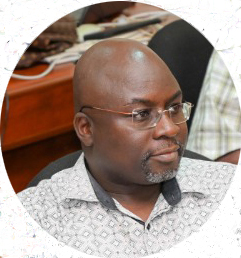
Masagazi Joel Yawe
Lecturer & Head of Education Department, Faculty of education and Arts Uganda Christian University,
Telegram: +256 784 601347
Whatsapp: +256 784 601347
E-mail : jmasagazi@ucu.ac.ug
Twitter: @MASAGAZI1
- Teacher: Joel MASAGAZI
Mr. Acidri Harry Adeoye
Mr. Dranduga Augustus
Angukoru Christine

This course explains what Enterprise Architecture (EA) is and how to create and maintain an effective Enterprise Architecture that enhances business strategic goals and decision-making processes from the perspectives of ICT enabled business processes.
Mr. Dokcen Charles
Mr. Andabati Dan Robert
The field of environmental chemistry is rapidly expanding, and excellent
employment opportunities exist in the academic, government, industrial and
public policy sectors. Environmental chemistry is the study of chemical
processes occurring in the environment which are impacted by humankind's
activities. These impacts may be felt on a local scale, through the
presence of urban air pollutants or toxic substances arising from a chemical
waste site, or on a global scale, through depletion of stratospheric ozone or
global warming
Course Objectives
The focus of this course unit is on developing a fundamental understanding of the nature of chemical processes in different environmental media (air, soil & water) so that humankind's activities and technology can be accurately evaluated. The course objectives are:
a. To provide an introduction to, and application of Environmental Chemistry and other related issues/matters.
b. To describe and explain the strategies and tools used to control and manage environmental pollution by considering selected Environmental chemicals.
c. To place contemporary problems of environmental pollution in a global perspective.
Learning Outcomes
Upon successful completion of this course, students will be able to:
a. understand the linkage between Chemistry and the Environment; causes and effects of Environmental problems/pollution arising from the chemical processes,
b. develop cognitive and analytical skills for Environmental Chemistry issues.

The Events Management Module is designed to provide students with a comprehensive understanding of the principles and practices involved in planning, organizing, and executing successful events. Whether you aspire to become a professional event planner, work in the hospitality industry, or simply want to enhance your skills in organizing social or corporate events, this module will equip you with the necessary knowledge and practical tools to create memorable and impactful experiences.
- Lecturer: Mary Grace NAKATE
This course equips students with advanced skills for the exposition and proclamation of the Gospel. It aims to make students better expositors of the scripture and cultivate a critical discipline of preaching as a call.
- Lecturer: Joel Obetia
- Teacher: R mubiru
- Lecturer: Doreen KUKUGIZA BUSINGE
Mr. Arumadri Godwil
Fluid mechanics introduces students to the general fluid flow principles. Here, you will get a demonstration of principles of hydropower development, water supply, drainage and flood defenses which require knowledge of fluid mechanics
This course covers areas of dentistry concerned with ethics and legal aspects of
dental practice, forensics and practice management. The scope of this course covers
the legal aspects of general dental practice, outline of forensic dentistry and the
principles of management in relation to dental Practice.
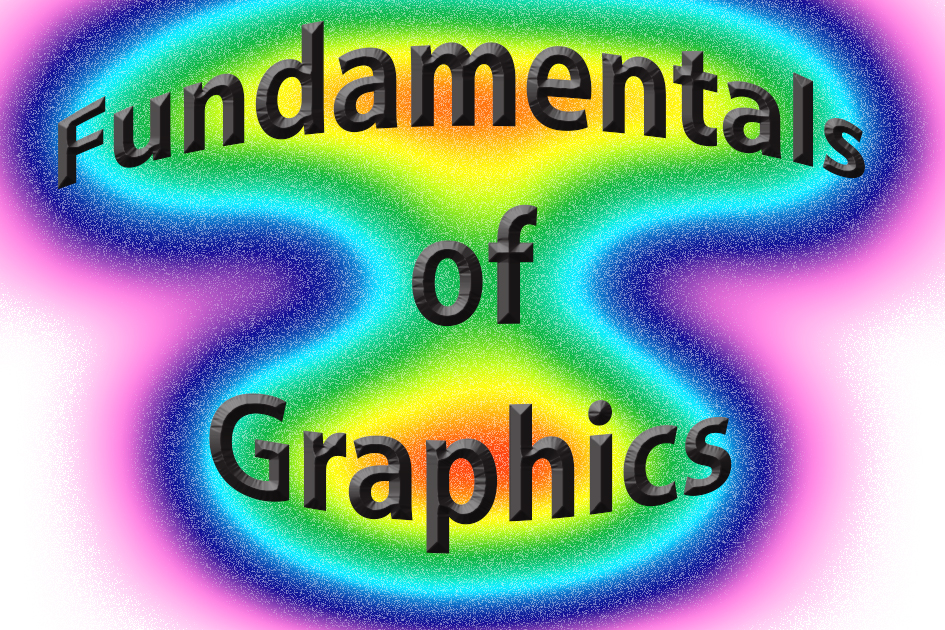
In fundamentals of Graphic learners will
experience the design process idea development, through sketching artwork and
preparation for final art work and production processes. In this course
learners will analyse and discuss aspects of graphic design, discovering best
practice in the field and exploring the processes involved in concept
development for particular target audiences. This course will equip learners with
skills and knowledge in design principles, use of colour, text, images and Application
of typographic principles and the use of designed materials to achieve
communication goals.
Course Learning Objectives.
The objectives of the course unit include:
- To equip learners with skills of identifying and discuss design principles and apply them to visual communication.
- To train students’ how to create simple typographic designs and develop personalised fonts.
- To equip learners with skills of how to use simple graphic design tools and techniques such as typography, colour, composition and narrative.
- To teach learners the techniques of creating graphic design processes and concepts with professionals in the field.
Course Learning Outcomes.
Upon successful completion of this course the learner will be able:
- To design as they apply principles to visual communication.
- To create simple graphic design ready for production.
- To use and apply techniques such as typography, colour, composition and narrative.
- To make graphic design processes and concepts with professionals in the field.
|
Course overview |
COURSE CODE: MHN1102
COURSE LEVEL: Year 1, Semester 1
CREDIT UNITS: 5
Course Description
This course will include a thorough introduction to the basic concepts of nutrition and food. Fundamental facts about food nutrients will be discussed with regard to their requirements, functions, effects of deficiency and excess. The concept of Nutrition throughout the lifecycle will guide the flow of study in this module. Highlight will be given on pregnancy, infancy, childhood, adolescence and aging. The overall aim of the course is to give the learner the introduction and overview into the area of Nutrition as an integral component of health.
Course objectives
1. To discuss the key concepts of nutrients (Carbohydrates; Proteins; Fats; Vitamins; Micronutrients) and their role in achieving a status of health in individuals and communities feeding practices
2. To explore the nutrient requirements throughout the lifecycle (e.g., pregnant women, infants, children, adolescents, aging).
3. To discuss Malnutrition (Under-nutrition, Overweight, Obesity) and describe the causes of malnutrition (conceptual frameworks) and preventive strategies
4. To explore the food chain, food paths and Food production systems
Outline
|
No. |
Topics |
|
1 |
Introduction to Nutrition concepts |
|
2 |
Macro and micro nutrients: Classification, sources, functions, deficiencies |
|
3 |
Food choice, fads and food culture |
|
4 |
Nutrition throughout the lifecycle |
|
5 |
Malnutrition: classification, causes, identification and prevention |
|
6 |
Food chain, food paths and Food production systems |
|
7 |
Food composition tables , Food balance sheets and Food-based dietary guidelines |
|
8 |
Trends in global and national food production |
|
|
Total |
Mode of Instruction: Lectures, practical work, group discussions and case studies
Mode of Assessment
|
No |
Mode of Assessment |
Mark (%) |
Posting date |
Due date |
|
1 |
Assignment 1 |
20 |
24th September 2018 |
10th October 2018 |
|
2 |
Project work |
30 |
22nd October 2018 |
22ndt November 2018 |
|
3 |
Final Examinations |
50 |
6th – 12th December 2018 |
|
|
|
TOTAL |
100 |
|
|
Reading List
1. Stewart A. Truswell. (2003). ABC of Nutrition. 4th edition
2. Michael J Gibney, Suzan A Lanham-New and Aedin Cassidy and Hester H Vorster. (2009). Introduction to Human Nutrition. Second edition. The Nutrition Society
3. Maurice E. Shils, James A. Olson, Moshe Shike and A. Catherine Ross. (1999). Modern Nutrition in Health and Disease. 9th edition, By Lippincott, Williams & Wilkins

This course equips learners’ with advanced typography, illustrating designing and photo editing techniques. Learners will also explore all the techniques of text layout, photo editing and formatting both by hand and use of computer aided software (Photoshop). This course will also equip students with skill of design processing, idea development of different illustrations both by hand and also by computers. Learners will also be equipped with skills and knowledge in design principles, use of colour, application of typographic & photo editing principles and the use of designed materials to achieve communication goals.

The field of painting requires an artist to first understand and master the color wheel and how to develop a color scheme. Painting may necessitate an artist to come up with an individual style based on the theme assigned to them i.e The changing situation in Uganda. Considering the above topic, you'll be required to develop a variety of sketches each focusing on drama, exaggeration, perspective among others
Mr. Drani Ronald
- Teacher: Micheal EverrestMawa

This course equips student teachers with knowledge, skills and attitudes
in theories of learning, different methods, techniques and strategies of
delivering lessons through Active Teaching and Learning (ATL).The course will
also explore issues of classroom management, the assessment of the teaching and
learning process, preparation and use of teaching and learning materials. It is
an interactive course where the learners will engaged in activities and
assignments weekly that will contribute to continuous assessment
marks. It requires basic knowledge in computer applications because most of the
teaching and learning resources will be generated using computer and also
presentations will be done using computers/phones and other ICT gadgets.
- Teacher: David Andama Anguzu
- Teacher: ICT Arua
- Teacher: Peter THOMAS NALIAKA
- Teacher: Rosemary BULYABA
- Teacher: Rosemary BULYABA
- Teacher: Rosemary BULYABA
- Teacher: Rosemary BULYABA
- Teacher: Rosemary BULYABA
- Teacher: John MUTYABA
Graduate Seminar Series III: manuscript/ policy brief/Research Implementation Skills-(MAG-2, MSHN-2)
- Teacher: Rosemary BULYABA
Introduction
Welcome to the course Grants Management and Evaluation! This module carries 12 credits and is a modular course. It will be divided into two streams. The grant process follows a linear lifecycle that includes creating the funding opportunity, applying, making award decisions, and successfully implementing the award. We shall delve into all these phases to that you can get grounded as grants administrator or manager in your respective organizations.
Course Description
Success in writing and winning grants comes through practice-based effort, sustained enthusiasm, tenacity, and a commitment to turn temporary setbacks (i.e., proposal rejection). GRANTS Management is a Step by Step which starts from the basic grant writing process, submitting to the grant opportunities, following directions, building relationships, and implementing sound program planning. By employing management strategies as outlined in here, you will significantly increase your ability to turn organizational programs, projects, and even general operating needs into proposals worthy of the full consideration of funders. The course will equip the participants with knowledge needed to manage grants through the entire process and managing the evaluations there-in.
Evaluation is a component of management at various levels of any programme or project. The course will also involves assessing the terms and conditions of donor aid and grant agreements, managing multiple donors funded projects and complying with donor reporting requirements on programmes. This course therefore addresses evaluation systems of the grants life cycle including management and Evaluation with specific reference to the geopolitics of donors and recipients. Traditional and new providers of grants include the bilateral and multi-laterals, as aid, grants or development loans. Therefore, the course builds up the subject matter of responsibilities and routines of recipients of donor aid and grants. This entails management that takes track of progress in relation to donors’ expectations through a program’s life cycle, evaluation of the flow of donor funds, and the key challenges in evaluation of donor aid and grant management and the context. This course is useful for grant management officers in various development organizations, researchers on policy in the public sector and policy evaluators. It goes a long way to inform decisions on future projects.

Graphical Product Design is the process of developing an appealing design for clients though graphic designing by creating designs that will be used to create actual products.
Mr. Olekua Jimmy

Health Promotion is a process of enabling people to increase control over their health and its determinants, and thereby improve their health. Health promotion is premised on the fact that health requires a multi-sectoral approach. The implementation process considers the fact that while the individual can exert personal control over immediate determinants of health, the more complex underlying ones require societal or community decisions and actions. The methods used aim at informing, educating and empowering individuals/ families and communities so that they can make informed decisions to promote and protect their health.
This course unit provides public health specialists with the necessary knowledge and skills for the development, advocacy, delivery, and evaluation of health promotion programs to targeted populations for safe motherhood in relation to behaviour change.
Topics discussed shall include Health Promotion concept, principles and approaches, communication skills, the place of communication in safe motherhood (case studies of good and bad communication – MMC model), Effective communication, Modes/Forms of communication at different levels for different populations.
Enjoy the course
- Teacher: Liliane LUWAGA
- Teacher: Ronald DRANI
Mr. Afimani Moses
Mr. Munduga Muzamil
Mr. Afimani Moses
This
course covers the peopling , the rise and consolidation of the United States of America as a
super power
- Teacher: Geofrey WANYONYI
This is the Moodle page for the Honours College, Easter Semester 2021. Student presentations and work will be submitted here, and there will be fora for mentors to interact with the students.
- Teacher: Bernard Bwambale
- Teacher: Pamela TUMWEBAZE
- Teacher: Stella Nantambi
- Teacher: Stella Nantambi
- Teacher: Rosemary BWIRE
- Teacher: JOHN ODUTTU
- Teacher: Apollo MBALEMA
- Teacher: Sam EJOYI
- Teacher: Apollo MBALEMA
- Teacher: Sam EJOYI
- Lecturer: Florence RWAMUHANDA
Mr. Ajuaba David Baiko
Mr. Wamusi Robert

The course reviews Information and Communication (ICT) for development, with a focus on policy-making regulation and strategy building with the aim of effectively cutting costs and improving quality without reducing services.
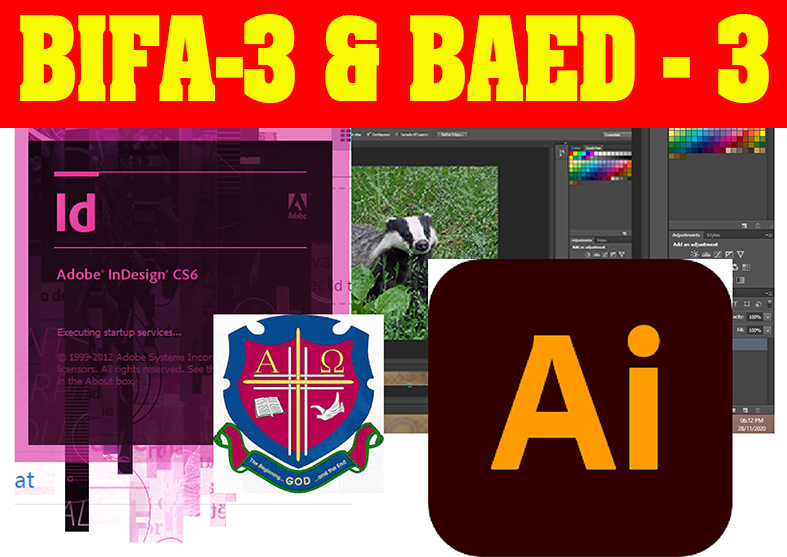
The course aims at equipping students to advanced computer graphic designing and project commercial concept creation skills of creating problem-solving graphic designs. Students will be expected to use all the knowledge and skills learned in the previous semesters and create projects that link society's needs and that are for problem-solving. The project will be made individually with the guidance of the course leader.
Course Learning Objectives.
The objectives of this course unit include:
To train learners to use graphic software and create complex problem solving using visual arts.
To train learners how to create an individual project using computer-aided design.
To equip learners with skills of designing and creating their own images and designs to advertising.
To train learners how to use various computer graphics software and present meaningful projects.
Learning Outcomes.
Upon completion of this course, a student will be expected:-
- To produce cooperate graphic brand designing as projects.
- To make computer-aided designs/ computer graphic designs through the creation of complex communicative symbols
- To design and create different social problem solving individual project in computer graphics
Mr. Wamusi Robert

Information and IT security is a central part of modern software engineering. Many threats can injure companies and private persons today. The course covers how security issues can be handled in business development and software engineering. The course includes human factors in security work, threat modeling, encryption, and security aspects in software development.
This class will introduce you to Insurance law and an appreciation of the industry in general. Students will examine the development of insurance over the years in other jurisdictions as well as in Uganda. This will enable them appreciate the important terminology used in insurance law for example the insurer, insured insurance policy, moral hazard, premium, claims procedure as well as other terminology as will be discussed in this class.
For purposes of ensuring that students obtain maximum benefit from the course, students have the obligation to read the material issued before the classes. This will enable students to critically analyze issues at hand as well as a more interactive learning environment. A discussion forum has been set up to enable students to ask questions related to the subject and matters that need clarification after the classes. This will be available online together with all the necessary reading materials for the class.
See: E learning Platform (https://moodle.ucu.ac.ug/
- Lecturer: Dinah Mukasa
Instructor: Robert Wamusi
The course of Intellectual Property I constitutes Introduction to Intellectual Property law (in general). It then delves into Copyright & Neighbouring Rights law; Trademarks, passing off and emerging related issues such as Image rights and confidential information. The course also examines how intellectual property law balances interests (e.g. creativity, innovation, technological development, access, use), and current issues and emerging debates in intellectual property such as ISP liability, online defamation, Cybersquatting, Shape & Olfactory marks.
a) Introduction to aspects of Intellectual Property Law: This part of the course offers an introduction into domestic aspects of the law and policy relating to Intellectual Property.
b) Copyright & Neighbouring rights law: This part of the course examines the fundamental characteristics of the law of Copyright and related rights in Uganda together with the development of international copyright agreements, particularly the Agreement on Trade Related Aspects of Intellectual Property Rights (TRIPS). The focus on the law is through case studies with specific references to International developments in Copyright law vis-à-vis an exposure into the intersection with image rights, Traditional Cultural Expressions (TCEs) or Folklore as well as the relationship between copyright and Cyber law.
c) Trademark law: The third part of the course examines the objectives of the national trademark system alongside international developments in trademark law through case studies. It also examines the practical problems associated with trademark registration, product counterfeiting and considers the controversial issues raised in similarity of goods and passing off. The course navigates through the critical jurisprudence developing in trademark law in Uganda and the latest trends on enforcement, including global discussions on trademark law in the Cyber world.
- Lecturer: Anthony kakooza
Mr. Asiku John
International humanitarian law is a set of rules which seek, for humanitarian reasons,
to limit the effects of armed conflict. It protects persons who are not or are no longer
participating in the hostilities and restricts the means and methods of warfare.
Course Objectives
To promote an understanding of Jus in Bello, which is the law regulating the conduct of hostilities as distinct from Jus ad bellum law which defines conditions under which States may resort to war.
To enhance an appreciation of the general principles and laws that comprise International Humanitarian Law and to assess how these rules developed over time.
To evaluate the application of the rules of International Humanitarian Law to
case studies and scenarios to understand how the law is enforced.
International humanitarian law is a set of rules which seek, for humanitarian reasons, to limit the effects of armed conflict. It protects persons who are not or are no longer participating in the hostilities and restricts the means and methods of warfare.
Mr. Ogen M Cosmas
Ajidiru Hope Sally
Mr. Dranduga Augustus
This course unit gives
a historical background, present status, and future challenges of the Civil and
Environmental Engineering profession. It treats ethics and professional
responsibility, written and oral communication, concepts of analysis, design,
computational approaches, experiments, interpretation of results, and decision-making.
- Teacher: Eleanor WOZEI
The course introduces students to concepts of epidemiology and disease surveillance.
Epidemiology of common communicable diseases will be discussed to equip students with knowledge of disease patterns. Disease surveillance and health education are discussed with a view to control outbreaks and epidemics of common communicable diseases in society.
This course enlightens bachelors’ students on the nature and uses of computers, providing them with the necessary Knowledge & Skills set to work effectively in an Information Technology environment.
Students will be introduced to the basic concepts of information technology and growing trends in the world today. The student will get basic knowledge about the computer and its applicability. Widely used applications including Word processing, Spreadsheets, Databases, and Presentation software will be taught
Mr. Asiku Kiss Kizza
Rev. Ruhama Dennis Onzima
Mr. Asio Annet
A. Course Description:
Humanity shares a vast diversity of culture. These cultures add some value to their particular philosophies, thinking and approach to particular concerns of well-being. In using African Traditions to engage peace building, the course explores African structures and their peculiarities in peace building using anthropological approaches. It looks at Mato Oput among the Acholi of Uganda, Gacaca in Rwanda, Bashingantahe in Burundi and the different forms of peace building used by traditional kingdoms and systems in Africa. While exploring blood pacts that solve conflicts and rituals of peace that help peace building, learners will be enabled to re-think and visualize a non-violent community. It also underscores God as the source of peace.
B. Course Objectives:
To demonstrate how African Traditions and structures continue to provide mechanisms for peace building. To examine acclaimed importance’s, and effectiveness of using endogenous methods in solving conflicts. To help students apply some of the elements learnt in peace building and solving conflicts.
C. Learning outcomes:
At the end of this course, students will:
1. Be able to discuss and appreciate African Traditions and Structures in peace
building
2. Be able to apply the learnt principles of peace building in simple and complex
realities of personal and communal life.
3. Be able to compare and contrast different peace building mechanisms across
the African Continent.
- Lecturer: Feta SIMON
| Mr Omaal John Drabile |
| Mr Omaal John Drabile |
| Mr Olekua Jimmy |
| Ms Mukeonzia Christine |
Rev. Ruhama Dennis Onzima
- Lecturer: Moses AGABA
This course unit is designed to provide learners with an in-depth introduction to the theories of microeconomics and its modern application. The course unit is particularly suitable for first-year undergraduate students who are studying degree courses in agricultural sciences, food science, business studies, and other fields of study, which among other course units include an introductory course in microeconomic analysis. No prior knowledge of economics is required as a pre-requisite for reading this course unit.
The overall aims of this course are three-fold. First, it aims at providing the learners with a sound understanding of the scope and methods of economic analysis. Second, it aims at equipping the students with sufficient knowledge and skills on the basics of demand and supply; theory of consumer’s behaviour, and theory of production and cost. Third, it aims at preparing the students for an intermediate course on microeconomics, which demands rigorous quantitative techniques in solving and analyzing economic problems.Exploration of the issues and trends that influence the nurse educator role within changing health care and educational environments. Includes analysis of the technological, legal, economic, political, cultural, ethical, and professional dynamics.
An opportunity to pull together your learning through 4 different lenses: Higher Education, Social - Political, Healthcare Services, and Technology. Deep discussion and your great ideas make this an especially interesting course.
| Mr Omaal John Drabile |
Karibu sana kwa kozi yetu pendwa. Kozi hii ya Kiswahili kwa mwaka wa kwanza italenga sana kuwawezesha washiriki kuweza kutumia lugha hii katika:
a) Kusema Kiswahili kwa ufasaha.
b) Kusoma maandishi ya Kiswahili.
c) Kuandika kwa kutumia Kiswahili kinachokubalika.
d) Kusikiliza kwa makini lugha na kufasiri ujumbe ifaavyo.
Course expectations here. Look at what we intend to achieve and do the TASK attached. Thank you
This is a course that builds on Kiswahili Introductory I that was handled in the previous Advent Semester Oct 2020 - Jan 2021
Welcome on board.
Hii ni kozi ya ushairi ambayo inatahiniwa kwa kila kiwango kuanzia shule za sekondari hadi vyuo vikuu. Kila mwalimu hana budi kujifunza kozi hii inayutia sana.
Ni kozi inayokuza kipawa cha wanafunzi na mhadhir mwenyewe wakiwa makini sana.
Karibu kwa kozi.
- Teacher: Arthur Mugisha
Karibu kwa kozi yetu ya Kiswahili semesta hii ya Pasaka 2021. Mungu atuwie radhi mambo yaende maridadi. Kumbukeni tutakuwa tukikutana darasani pamoja na kufanya mazoezi kupitia mtandaoni. Tafadhali weka nguvu tujifunze Kiswahili Lugha yetu ya Kiafrika
Mwalimu Arthur Mugisha
The course will build on the introductory principles already covered in the first semester and enhance a deeper understanding on the laws relating to employment. The course covers the following major topics:
- Workers compensation
- Occupational health and safety
- Social security
- Labour dispute resolution
Mr. Vita Patrick
Mr. Dokcen Charles
- Teacher: Anthony NDYASIIMA
- Teacher: Anthony NDYASIIMA
- Teacher: Anthony NDYASIIMA

The course covers the mechanisms of degradation of concrete structures, and it largely provides the students with the relevant knowledge of available techniques and their application for strengthening and/or upgrading existing structural systems. The course also provides how to conduct field monitoring and non-destructive evaluation of concrete structures.
On a further/broader perspective, this course outlines the basic concepts and methods of the life-cycle management including conceptual/basic design, detailed design including service life design, and maintenance and rehabilitation for civil infrastructure. Firstly, objectives, functions and performance requirements for infrastructure will be discussed including selection of types and materials, performance verification and service life prediction at the basic/conceptual and detailed design stages. Then, maintenance procedures after construction will be covered including inspection, prediction, assessment, and interventions. Finally, the management methodologies are focused on how structural performance is ensured with the coordination of design and maintenance and how decision is made on interventions. Life-cycle cost analysis and environmental impact analysis will be dealt with as the indicators for decision making.
- Teacher: Rodgers TAYEBWA
Ajidiru Hope Sally
This course is designed to enable students acquire knowledge and skills needed to effectively utilize information systems and technology in to support of organizational strategy. Management information systems (MIS) is very relevant in project management. The course exposes learners to modern skills for a public administration. This course helps learners to be able to generate and organize data on project inputs and outputs; such information is useful in measuring and improving project performance both in the short and long term. This course helps students see the connection between information systems (IS) and organizational performance. The use of information and communication technologies (ICT) by individuals and organizations dominates the new public management reforms. There is a fundamental change going on in the way that organizations run businesses and interact with each other on a consistent basis. New types of infrastructure and applications are developed and utilized such as ERP (Enterprise Resource Planning), IOS (Inter-Organizational Systems), RFID (Radio Frequency Identification), and CRM (Customer Relationship Management) among other
Mrs. Ndaru Proscovia
Mr. Ogen M Cosmas
Mr. Ogen M Cosmas
- Teacher: Isaac NUWAMANYA
Medical Sociology is a concept that seeks to help students understand medicine from a holistic approach. In other words, medical sociology provides a complementary non-biomedical perspective to medical practice. It explores the covert impact of the social, psychological and emotional aspects on the health and well being of an individual or a group of people. This will includes the following:
- The social dynamics of health, i.e., social determinants of health
- The psychological dynamics of health, i.e., the psychological determinants of health
- The emotional dynamics, i.e., the emotional determinants of health
The above dynamics will be explained in their relationship with the medical determinants of health.
In its complementary role, medical sociology helps the medical practitioner to engage the patient beyond prescriptive approach to include non-prescriptive interventions that may positively impact the health outcomes of an individual.
It also provides an opportunity for the medical student to consider other branches of medicine which may not necessarily be within a health facility setting but may involve other aspects like public health or research and design of health interventions for communities. Though not a core course, yet it provides some insight into what alternatives may be open after medical school.
This is an introduction to Sociology in General and Medical Sociology in particular. This is a course provides am insight into other non-medical issues which mainly hinge on those social issues that may impact on the outcomes of medical interventions. The first year Medical student is given the opportunity to explore sociological variable in their medical practice and how they can be harnessed to improve the well being of communities they serve.
It is a very easy and practicable course which gives the student the opportunity to move out of the classroom content and envisage the field, not only in the confines of medical facilities, but into the community. It also explores the relationship between a country's policies and systems or structures and how they can be improved to achieve equitable and quality healthcare to their citizenry.
This course introduces students to the sociology of healthcare and human behavior and addresses groups; concepts of health, illness and disease; patterns of health and illness; social class, gender; ethnicity; quality of life; media; ageing, society, housing, homeless, work, unemployment, stigma and how they relate to health.
- Teacher: Elizabeth NAGUDI
INTRODUCTION
This course introduces a holistic approach to mental health nursing by applying the models of promotion, prevention and care in diverse settings. It explores personal and cultural perceptions, values and beliefs regarding mental illness. It is designed to facilitate your understanding of common mental health disorders, aetiology, presentation and across the life span and your learning in the therapeutic nursing care of the patient with mental health problems using an evidenced based approach. It discusses the need and relevance of community mental health care in Uganda while stressing the role of the nurse in providing support to clients and their families to cope with mental illness.
COURSE OBJECTIVES
1. Describe the theoretical basis of mental health and psychiatric nursing
2. Demonstrate critical thinking by applying the nursing process and Gordons Functional Health Patterns to provide safe, culturally appropriate, patient‐centered care to clients with mental health problems.
3. Demonstrate therapeutic communication techniques, including counselling and teaching patients and families, in the mental health setting.
4. Demonstrate qualities and behaviors of the professional nurse in psychiatric settings (inpatient, outpatient and psychiatric rehabilitation)
5. Describe the role of community nurse in community mental health promotion, prevention and rehabilitation.
LECTURE SCHEDULE
|
Week |
Content |
|
1
|
Introduction to mental health (Concepts of mental health, stress and mental illness) Self-evaluation of personal values, beliefs and feelings towards mental health, mental illness and psychiatric institutions Cultural perceptions of mental health, mental illness and mental health nursing |
|
2 |
History of psychiatric services in Uganda Introduction to legal and ethical issues related mental health care Introduction to causes and signs and symptoms of mental illness |
|
3 |
The therapeutic relationship and communication History taking and Mental State Examination Assessing a client using Gordon Health Function patterns Introduction to the Nursing Process |
|
4 |
Depressive and Bipolar disorders Application of the Nursing process in depressive and bipolar disorders |
|
5 |
Schizophrenia and other psychotic disorders Application of the Nursing process in schizophrenia and other psychotic disorders |
|
6 |
Neurocognitive disorders (Delirium & Dementia) Application of the Nursing process in neurocognitive disorders
|
|
7 |
Psychiatric Emergencies (suicidal behavior, violence, Anger and Aggression Epilepsy |
|
8 |
Substance use disorders Application of the nursing process in substance use disorders |
|
9 |
Introduction to drug treatments in psychiatry Introduction to counselling and psychotherapies |
|
10 |
Anxiety disorders, obsessive compulsive disorders, trauma and stress related disorders Application of the Nursing process in anxiety disorders |
|
11 |
Psychiatric conditions in general medical care Psychiatric conditions in women
|
|
12 |
Psychiatric conditions associated with HIV and Covid- 19 Childhood mental disorders |
|
13
|
Personality disorders and sexual disorders Introduction to community psychiatry
|
COURSE GRADING
|
Assessments |
Marks |
|
Reflective Journal |
5 |
|
Health Assessment and Nursing care plans |
10 |
|
Attendance |
5 |
|
Course work |
5 |
|
Mid semester Exam |
25 |
|
Final assessment |
50 |
|
Total Marks Available |
100 |
RESOURCE MATERIALS
1. Boyd AM (2017) Psychiatric nursing: Contemporary practice (6th ed)Walters Kluwer Health/Lippincott Williams and Wilkins
2. Schultz J.M and Videbeck, S.L( 2013) Lippincott’s Manual of Psychiatric Nursing Care Plans(9th Ed) Lippincott Williams & Wilkins.
3. Videbeck, S. L (2020). Psychiatric Mental Health Nursing. (8th ed) Wolters Kluwer Health/Lippincott Williams & Wilkins
4. American Psychiatric Association. (2013). Diagnostic and statistical manual of mental disorders (5th ed.). Arlington, VA: Author
Course Name: MERCANTILE LAW I (The Law of Sale of Goods & Agency)
Course Code: BLAW 2104
Course Level: LLB2 Semester I
Credit Units: 5
Class Location: As communicated
Course Facilitator(s):
Kashaija Emmanuel-Lecturer
COURSE DESCRIPTION;
The present course of study seeks to enlighten the student on the various provisions of the Uganda Sale of Goods and Supply of Services Act, 2017 and its application to daily commercial transactions involving the transfer of property in the goods as well as other kinds of transactions related to the sale of goods and agency.
Course Objectives
At the completion of the course, through interactive lectures, discussions, presentations, and research, the student should be able to:
• Develop and understand the origins of Uganda’s law of sales and the related transactions i.e. the law of agency;
• Understand the fundamental principles of the law of sales and agency etc.
Dear Students,
I welcome you back from your holidays.
I will take you through Mercantile Law II, which is majorly the law of insolvency and Hire purchase in Uganda.
I wish you a successful semester,
Emmanuel Kashaija
Mr. Munduga Muzamil
Mr. Ajuaba David Baiko
This course focuses on the characteristic features of different human parasites including their life cycles, Taxonomy of the parasites and the role of Zoonoses in the transmission of diseases
Dear students you are welcome to medical microbiology and its application to nursing
see the course outline bellow
This course is designed to expose students to working in a multimedia environment.
Students will learn how to combine text, audio, video, graphics and photography in
various ways for online publications such as a website and a blog. Students will also
learn how to use social media as a research tool and to promote journalistic content
and PR content. Students also learn how to optimize their smart phones using relevant
applications to produce journalistic and PR content.
Mr. Acidri Harry Adeoye
Welcome to understanding the New Testament by Mr. Abakunda Yesu Shepherd
It is simply an overview of the life and ministry of Jesus Christ
- Lecturer: Abakunda Shepherd
Mr. Afimani Moses
| Mrs Ndaru Proscovia |
Mrs. Ndaru Proscovia
- Teacher: Edison KALENGYO
- Teacher: Edison KALENGYO
- Teacher: Lovincer KATANA
- Teacher: Peter THOMAS NALIAKA
- Teacher: Peter THOMAS NALIAKA
Nursing clinical study I is carried out in nursing area of interest that match topics covered in pathophysiology, pathopharmacology, and health assessment which focuses on hematologic, cardiovascular, pulmonary and renal systems.
Students will also look at nutrition, relevant health assessment, primary prevention and application of the nursing process related to the issues studied. relevant healthcare problems will be reviewed from a global and evidence based perspective. Areas for impact of advanced nursing practice related to clinical problems will be explored.
Students will find clinical sites to study the areas of interest from a practice perspective.
Objectives: Please see course outline.
- Teacher: Faith SEBULIBA

- Teacher: Elizabeth NAMUKOMBE
This course is designed to introduce nursing students to the research process, with an emphasis placed on the development of a research problem statement. Quantitative and qualitative research methods and approaches will be discussed. Evaluation and utilization of nursing research is considered in the context of professional nursing with a Christian perspective.
- Teacher: Faith SEBULIBA
- Teacher: Mary Grace NAKATE
- Teacher: Mary Grace NAKATE
- Teacher: Elizabeth NAMUKOMBE
- Teacher: Faith SEBULIBA
This course introduces the concepts of basic human nutrition across the lifespan. Students are guided to discuss the basic sources of nutrients among local communities in Uganda and assessment for nutritional wellbeing. The common nutritional disorders for Uganda and East Africa are reviewed. Guidelines on how to address such problems are described and particular emphasis made for those at highest risk e.g. the sick, children and women. Special diets and their preparation for specific health disorders are discussed i.e. diabetes, hypertension and renal disorders. Diet supplementations are explored and recommended.

As of 2019, the ODL industry adoption was US$18.66 billion as Global EdTec investment and is projected to reach US$350 billion by 2025[1]. This means the implementation of e-learning programmes into various institutions is increasing at an unprecedented rate. Such trends have been sky rocketed by COVID-19 where all academic institutions locked down have to devise teaching and learning through ODL. This growth means the effective implementation of ODL need a dedicated and skillful workforce in order to accelerate adoption. This course is about creating ODL Champions within higher education institutions.
Whether you’re interested in expanding your teaching experience; using your writing abilities to move into the online education industry; or have been working in the field and want to formalise your skills as a learning designer or instructional designer, this course will help develop the interpersonal, written, and visual communication skills necessary for you to develop educational material into frameworks suitable for online learning. This course will give you the opportunity to expand your career in the education technology industry. With a personalized and supported framework, you’ll study in your own time, guided by industry experts and a dedicated support team.
- Teacher: Ezekiel Byamukama
Mr. Drani Ronald
- Lecturer: Rose EKIRUNGA
Introduction to Online Learning

Welcome to the Introduction to Online Learning for Students Course!
This course introduces students to online learning, how it differs from face-to-face learning, and the use of Moodle, the UCU eLearning platform.
By the end of this course, you will be able to successfully access your courses, receive course content, and successfully complete all assessment activities.
NB: MTN has provided zero-rated data when accessing elearning.ucu.ac.ug, moodle.ucu.ac.ug, and alpha.ucu.ac.ug.
Note that links that take you outside of those domains will accrue data charges. This includes links to videos, external web sites, and library resources.
- Lecturer: Olivia Aber
Mr. Acidri Harry Adeoye
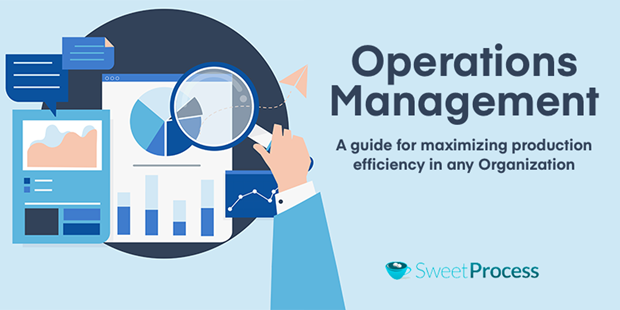
Managing operations in firms and their supply chains.
Welcome to Organizational Behaviour!
The flow of this course will use a mix of blended asynchronous (not live/real-time), and synchronous (live/real-time) learning activities. This course will have regular weekly assignments due, scheduled live blended class sessions (via web conferencing and physical sessions), weekly text discussions via the course discussion forums, as well as readings and course materials that each of student is required to keep on top of each week.
This is not a self-paced course. Each student must manage their own time each week, to know when assignments are due, and any other weekly course obligations, and all students move through the course together each week. This will involve regularly logging into the online learning systems to check forums, communications, monitor your email address and WhatsApp communications, and virtually interact with classmates, team members, instructors, and course materials.
At this point, the following are being suggested actions:
Begin to familiarize yourself with the eLearning Moodle Platform and the Alpha MIS site, which can be accessed here: https://moodle.ucu.ac.ug and https://alpha.ucu.ac.ug
Make sure to read the course syllabus, located on the Moodle page, and review the required or optional textbooks that may need to be downloaded, the scheduled live session dates/times, as well as assignment due dates, so you can plan your semester accordingly and get those dates in your professional calendar.
Read through the course outline, so you know the rhythm of course, and what is expected.
You are invited to consult with your lecturer as soon as you are faced with a challenge, so that you can be assisted before it is too late. The consultation times are indicated up in the time table in this document. Please note that the guide is subject to change, as circumstances may dictate. Any changes will be communicated on the e-learning website. This course adopts online learning and teaching approach.This course exposes students to key issues in organizational communication. It defines organisations and then delves into the different forms of communication applied in the organisations. It looks at internal and external communication dynamics in organisations at different levels – including international level. The course prepares students for organizational communication in corporate, public and non-profit contexts.
Mr. Arumadri Godwil
- Teacher: Brian MUHEREZA
Rev. Julius Tabi Izza
Pathophysiology II builds on the concepts that were learned in Pathophysiology I. The aim remains to increase students’ knowledge and background of human physiology and the physiology of disease in order to strengthen their teaching skills. Pathophysiology II focuses on: hematologic, cardiovascular, respiratory, renal, digestive and integumentary systems as well as the concepts of shock, burns, and multiple organ dysfunction syndrome In addition an overview of Pharmacological interventions will be described for each of the body systems covered in this course.
- Teacher: Ezekeil MUPERE
- Lecturer: Patrick MBAASA
- Teacher: Peter THOMAS NALIAKA
Rev. Driwaru Beatrice Fefia
- Teacher: Brian MUHEREZA
- Teacher: TURYAHAABWE Good
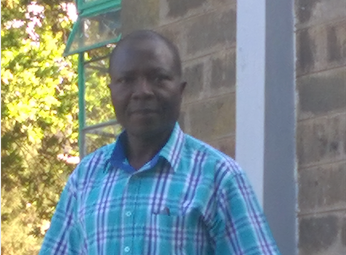
Dear, Leaners
Welcome to this Course unit known as Introduction to Perennial Crops and Plantations.
In this course unit, we shall cover the following:
1. Types of perennial crops and their importance in East Africa. 2. Analyse the factors affecting their distribution in relation to East African environments. 3. Application of agronomic principles to the production of banana, coffee, cocoa, tea, sugar cane, citrus, and other fruit crops within East African environments. 4. Lastly, cover the propagation, pruning, and grafting techniques as applied to these crops.
Due to standing measures put in place to fight COVID-19 a deadly viral disease, which has affected the entire world, our lectures will be purely virtual. So please adjust accordingly to fit in the NEW NORMAL. Let us not lose hope because in Isaiah 14: 27 (God tells us that; "His hand is stretched out, and who can turn it back"). This implies that Our God will take through this storm and one life will come back to normal.
Be blessed!
Periodontology is the study of the conditions that affect the periodontal tissues,
namely gingiva, periodontal ligament, cementum and alveolar bone.
This course equips students with knowledge, skills and attitudes with the
objectives outlined belowPersonnel Management & Administration issues are emerging as some of the most prominent concerns for business owners and managers particularly HR managers who need to be more strategic, business/ customer focused and generally into overall operation success of the organization. So what is happening in today’s business environment, HR managers need to rethink their way of doing business. They have to think in more strategic terms about how to win against their competitors by utilizing their human resources optimally.
- Teacher: Patrick LUGEMWA
Andabati Dan Robert
Causes, principles and practices responsible for losses/wastage of agricultural products in the food systems are explained especially in the developing world context. The consequences of these losses to the agricultural value chains in terms of qualitative, quantitative, nutritional and socioeconomic losses are also discussed. Students are then introduced to various conventional and modern loss assessment and estimation techniques and their limitations. Through case studies and inclusive discussions mitigation technologies and innovations appropriate for zero losses in the developing world for different categories of agricultural commodities and corresponding food systems are studied with special emphasis on comparing advanced and developing country contexts. Consideration is made to discuss the interrelationship between the characteristics of the agricultural products and the facilities, equipment and markets in the respective agricultural product value chains as well as food systems.
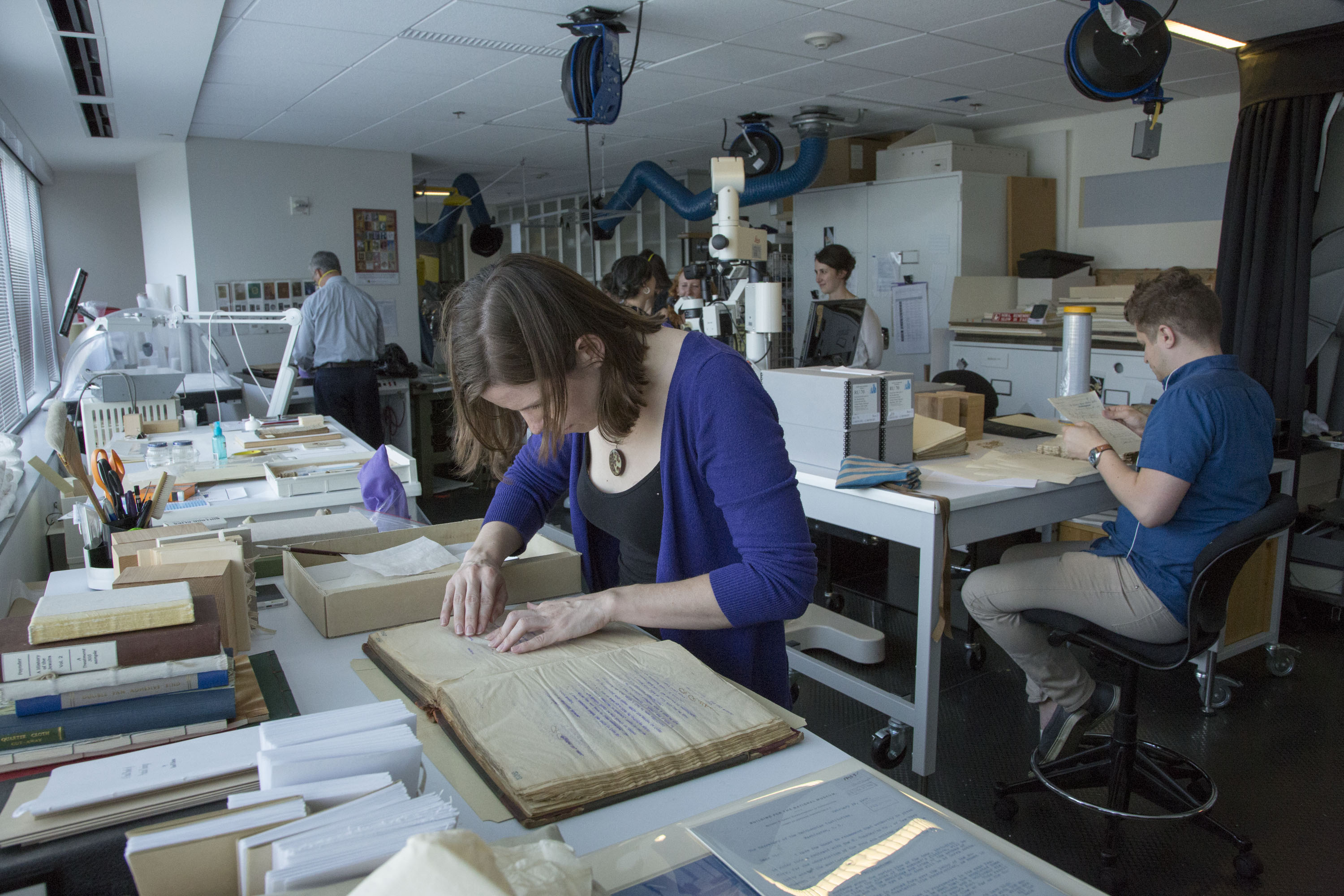
This is preservation and conservation course unit designed for UCU-MLIS year one students 2024 Advent semester.
The course is designed equip learners with knowledge and skills of prolonging the usable life of useful research information in libraries and information centers
The course will cover the following topics:
Introduction to development economics, economic growth and economic development, theories of development, challenges of economic development and education and development. Others will include health and development, foreign aid and foreign capital as well as country experience in economic development.
- Lecturer: Mary Chowenhill
| Mr Ajuaba David Baiko |
This course is called POM. It will be lectured by Norbert Bandale assisted by Mr Asiku Kiiza.
Management
simply means a specific process of planning, organizing, staffing directing and
controlling the efforts of the people who are engaged in activities in a
business organization in order to attain predetermined objective of such organizations.
- Lecturer: Bandale Norbert
Asio Annet
Mr. Asiku Kiss Kizza
Mr. Wamusi Robert
Mr. Olekua Jimmy
Mr. Dokcen Charles
Mr. Asiku John

Welcome to Project and Business Environment course. The course is intended to introduce students to the environment around a project and how this environment can be managed to the advantage or survival of a project. The focus of this course is therefore to generate the necessary information, knowledge and skills for managing the project and its business environment.
Mr. Oyo Silas
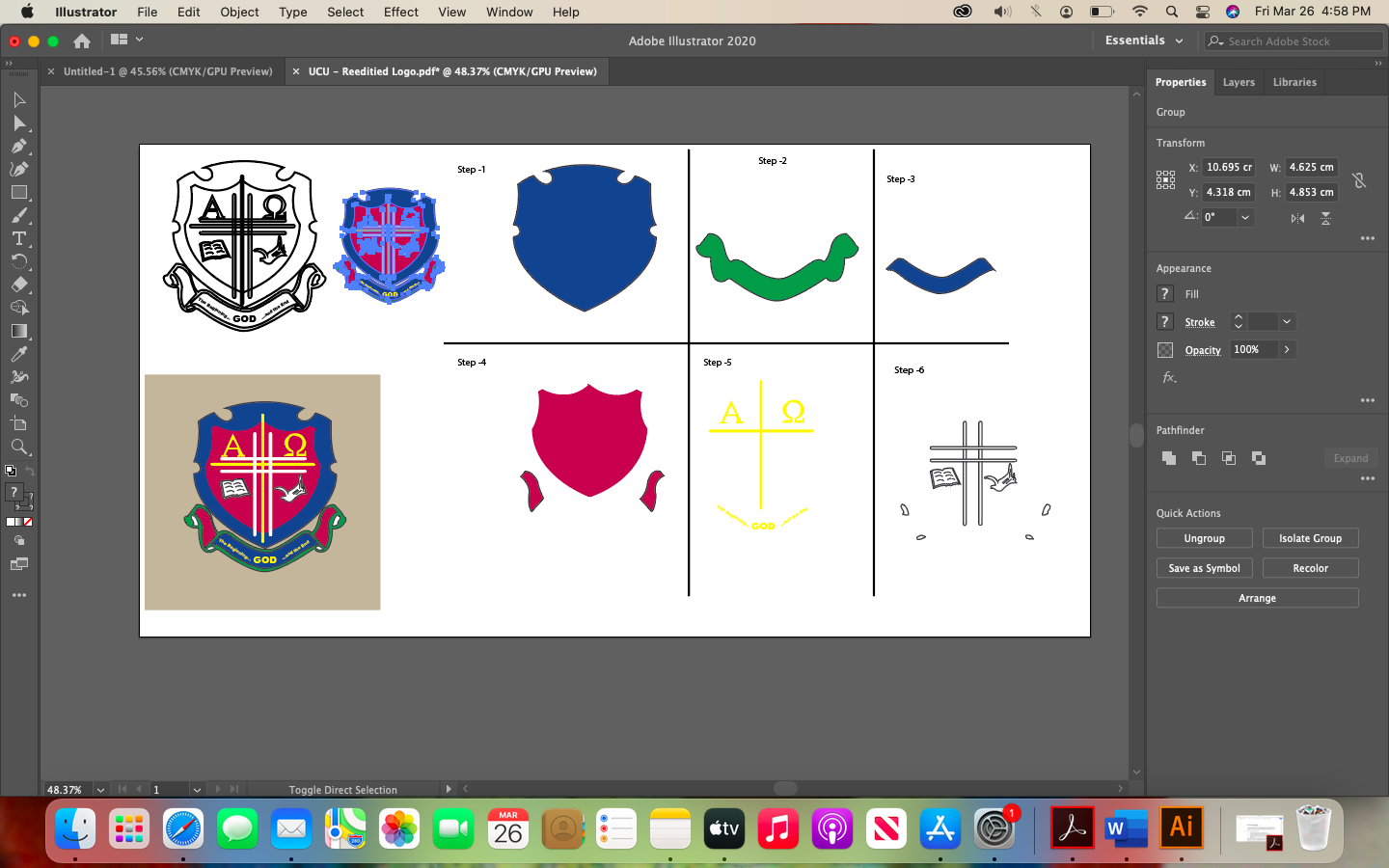
Project development in Computer introduces the concepts and implementation of computer graphics designing techniques, this course will focus on the practical & theoretical aspects and methodologies of graphic designing.
- The course aims at equipping students’ with skill of project development in graphics and exhibiting skills. This unit will enable learners to identify their own abilities and create individual projects in graphics designing which range from serigraphy, graffiti, wall graphic writing, 3D letter creation etc.
- Course Learning Objectives.
- By the end of the course unit, students should be able:-
- To develop humanitarian attitudes among themselves..
- To help each other and develop a sense of interdependence.
- To train students to produce good project works in graphics.
Course Learning Outcomes.
Upon completion of this course, a student will be expected to;
- Produce different types of graphics art projects with apparent relationship either to the child art or adult professionalism.
- Create graphic projects centred on designing ranging from glass staining, graffiti, wall graphic writing, 3D letter creation.
- Develop different graphic projects both individual and different groups.
Mr. Acidri Emmanuel Bilah
Monitoring and Evaluation (M&E) provide answers to questions regarding the output, effects and impact of the project or program in the life of the target population. Information secured through monitoring and evaluation must be relevant, i.e. geared to specific needs of program and project administrators; timely, i.e. available and accessible at the time decisions are taken; and accurate, i.e. reliable and empirically verifiable. The course uses the project life cycle as the organizational guideline, and contents will cover the whole process of project management, including project initiation, project planning, project implementation and project termination.
- Teacher: Rodgers TAYEBWA
Mr. Arumadri Godwill

- Lecturer: Rev. Dr. Jessica Hughes
- Teacher: Brian MUHEREZA
Mr. Nyolonga Colbert
Mr. Arumadri Godwil
Mr. Dokcen Charles
Mr. Asiku John
Mr. Ajuaba David Baiko
Mr. Olekua Jimmy
STAKEHOLDERS' INVOLVEMENT IN QA IN EDUCATION INSTITUTIONS
A stakeholder is anyone who is impacted, either directly or indirectly, by what happens within an educational institution. There are various stakeholders in education, and each stakeholder has a role to play in ensuring quality within the institution.
The Stakeholders in education include students, parents, educators, policy-makers, the business community, and donors. Each of these groups has a vested interest in ensuring that the educational system is effective and meets the required standards. Stakeholders' participation also ensures that policies and practices are relevant, well-supported, and aligned with the needs of the entire school community.
a
- Teacher: Margaret KIWANUKA
Mr Dranduga Augustus
matrices:
Types of matrices
Finding determinants of 2x2 matrices and 3x3 matrices
Finding inverse matrices
solving Simultaneous equations using cramers rule
- Teacher: Augustus Dranduga
Mrs. Oobiru Alice
Mr. Ogen M Cosmas
This course is designed to provide students with the fundamental skills to understand, use, and conduct research to advance the social work profession's knowledge base and assess the effectiveness of social work interventions in generalist social work practice. The course addresses the research process elements, quantitative and qualitative methods, research ethics, and approaches to data analysis.
The research methods course introduces students to the principles of social science research and the relationship between theory and methods. Particular attention will be placed on the differences between quantitative and qualitative research methodologies as well as the different techniques used in the respective approaches to avoid bias.
1. Objectives:
1. To introduce basic scientific methods for data collection and their management.
2. To critically examine the scientific method that is normally followed in the research process.
3. To study the basic techniques for information analysis and presentation in the real world.
4. Understand the linkages between theory and the practical scientific research process.
5. To appreciate the practical application of research methods in the field in order to make the research experience real.
- Lecturer: Jeremy WAISWA
This is an introductory course to research methods. Students who complete research methods 1 will also be expected to take research methods 2 in their second year of study. The objectives of research methods 1 include:
- Lecturer: Joseph Matovu
- Teacher: Nancy Sayuni
- Teacher: Nancy Sayuni
- Teacher: Jeremy WAISWA
Dear Students,
You are welcome to this course unit, called Research Methods. This course unit is prepared to give insights and an opportunity to establish an advanced understanding of scholarly investigations. Research methods are critical in solving problems in our communities. Therefore, this course introduces the language of research, ethical principles and challenges, and the elements of the research process within quantitative, qualitative, and mixed methods approach. You will use these theoretical underpinnings to begin to critically review the literature relevant to your field or interests and determine how research findings are useful in forming their understanding of their work, and social, local and global environment.
Starting from the initiation of human civilization, all efforts have remained directed towards improving the quality of life. In the process, of “Research,” the search for knowledge, is ever-increasing. A huge amount of resources in different forms is being channelled for this purpose. As such, the importance of research methodology is being felt day by day to have more and more successful research programs. The voyage of discovery could be more meaningful if due attention is given to the art of scientific investigation, particularly in designing and meticulous implementation of research projects. program. Taking all these into consideration, a guideline about the appropriate methodology to be adopted and, in the process, the methods and techniques to be used so as to have successful research projects.
Effective monitoring and evaluation rely significantly on the quality of information used. The proper use of statistics along with words makes communicating information much easier, faster and accurate than when words are used alone. This requires that monitoring and evaluation scholars and practitioners acquaint themselves with methods of collecting, analysing, and using data. This course is designed to enhance students’ understanding of the design, conduct, data interpretation and reporting of social science research. It explores the fundamentals of scientific method and scientific inquiry. It covers topics such as methodology, ethical considerations in research, strengths and weaknesses of diverse data collection methods, basic methods in quantitative and qualitative data collection; data analysis and interpretation; critical reading of statistics; and reporting of research findings for use in monitoring and evaluation. This will be attained through the use of discussions, analysis of peer reviewed journal articles, and hands-on practice. Students will learn how to conduct a research project from beginning to end.

Welcome to this course.
The course is designed to expose you to various risk dimensions and help you appreciate the elements of risk and how to mitigate such risks
- Teacher: Abigail Sengendo
food production has gone down due to many factors ranging from soil infertility and climate change resulting into emergency of pest and disease pathogens
the resources required for this lesson
1.cocopit/artificial medium for germination of seeds
2.certified seeds
3.water and garden inputs
- Teacher: Micheal EverrestMawa
|
The course focuses on some of the key elements needed to produce effective scholarly writing. It explores the integration and evaluation of primary and secondary material, reference and citation styles, and academic integrity into the construction of an argument. The course enables doctoral students to develop their scholarly writing skills both for the purposes of their doctorate and for their academic career in publishing. The module is designed around workshops and seminars and involves students critiquing exemplars of scholarly writing from Journalism and Media and Communication. Students will also produce their own pieces of scholarly writing, which will be critiqued in terms of writing style. Students will be encouraged to peer-review each other’s writing and reflect on their own writing skills. The course will be delivered in a blended mode. A minimum of 30% will be taught face-to-face. Students are expected to undertake significant independent study, which will take the form of reading, note-taking, and the completion of assignments. Readings, lecture slides and any recordings will be uploaded onto Moodle. Discussion will take place during the scheduled classes, either face-to-face or online. Purpose of the course The course focuses on critical writing, reading, and thinking skills to help students gain confidence and expertise in scholarly writing. It covers various aspects of Scholarly Writing including style, tone and vocabulary, summarizing and paraphrasing, referencing and citation styles, reviewing and editing. It relates these technical aspects to the writing process and to different elements of writing (Abstracts, Literature Reviews, Introductions and Conclusions, Analysis & Discussion, Proposals etc.), using authentic examples of scholarly writing from the discipline of Journalism, Media and Communication as case-studies. This course aims to: 1. Introduce students to scholarly writing 2. Explore the purpose of Scholarly Writing 3. Outline the key elements, codes and conventions of scholarly writing, and the different stages of the writing process 4. Encourage students to critically reflect on their own writing skills and practices 5. Develop skills in scholarly writing 6. Equip students to write for Publication By the end of this course, students should be able to: 2. Identify the key elements, codes, and conventions of scholarly writing 3. Demonstrate an informed understanding of the purpose of scholarly writing 4. Analyse authentic examples of scholarly writing from Journalism, Media and Communication studies 5. Review, edit and effectively respond to feedback on scholarly writing Present a convincing and valid piece of scholarly writing as appropriate to the discipline of Journalism, Media and Communication studies. Uganda Christian University Doctor of Philosophy Scholarly Writing and Publication Advent Term, 2024 Timetable
|
- Teacher: Terhemba MICHAEL-AHILE

This course focuses on administration of operating systems in a client-server technology (Windows and Linux on virtual machine), installation and maintenance. It prepares students to installation of Windows Server, NTFS file system and folder permissions, Domain Name System, Active Directory, local and domain Group Policy, Windows Terminal.
Services, Internet Security and Acceleration Server, Internet Information Services, communications and networking. An introduction to Linux, installing Ubuntu, advanced usage and managing Ubuntu, terminal, working with Windows, system administration, configuration of server: WWW, DHCP, DNS, Samba, NFS, emails and printers.
Course Description
This course emphasizes the advanced application of the person in environment, strength based and empowerment perspectives of social work practice. While Interventions I emphasizes the skills needed to apply this model, this course emphasizes the application of the generalist practice model of planned change to all levels of social work practice including micro(individual), mezzo(family, group) and macro (broader systems changes). This course will pay particular attention to the application of the generalist practice model of planned change within an East African context. Social work values and ethics will also be applied to all levels of practice.
Course Objectives:
After completing this course students will be able to:
1. Identify the GPM (generalist practice model) of planned change;
2. Analyze the strengths and challenges of this model within an African context;
3. Apply the strength based and empowerment perspectives and principles to the implementation of the GPM of planned change regardless of the size of the target population;
4. Apply the GPM of planned change to specific problems at the micro, mezzo and macro levels within an East African context;
5. Recognize ethical dilemmas in social work practice and demonstrate the ability to apply a model of ethical decision making and
6. Apply critical thinking and scientific methods to analyze and evaluate social work practice in the generalist model.
COURSE SYLLABUS
COURSE DESCRIPTION
MSW 414 introduces a generalist perspective of social work practice and offers a problemsolving framework for social work practice that includes exploration, assessment, goal setting, planning, implementation, evaluation and termination. The course incorporates processes of professional relationship development, communication, role-taking, ethical decision making and the principle of empowerment in practice with multi-size client systems.
Mr. Asio Annet
| Ms Mukeonzia Christine |
One of the major challenges confronting public policy in modern times is how to overcome overt and subtle discrimination in the art of governance, economic growth and development. Among the several pathways to the realization of this goal, the pursuit of tolerance of social diversity and the eradication of exploitation of one group by others remains a major focus. Understanding the political and civil rights of different social classes, as well as their economic, social and cultural rights provide the basis for the course on Social Diversity, Gender, Equity and Public Policy.
Students will be guided to understand the discourse on social differences, and how state and society have responded over time to the growing demands for inclusive growth and social justice in development. It is important for students to appreciate how evidence from reflective research is contributing to the unfolding paradigm shift towards embracing social diversity and equity with special reference to race, gender, ethnicity and disability, to name a few.
The course highlights how policy instruments influence the process of income distribution across different social groups; how public policy can be used to address people’s freedoms across different social groups. In addition, it points out the kinds of social research that have evolved around the theme of public policy, and the pressure on social scientists to re-examine the norms of research practice. The trend is in favour of research methodologies that provide more disaggregated information and explanation on the situation of different social groups in society, with special reference to their relations with each other and implications for social justice. The ways in which life-course changes such as childhood, youth, motherhood, working life, ageing, disability among others are managed through various public policies will also be addressed.
- Teacher: Kukunda Elizabeth Bacwayo
- Teacher: R cheptoris
Mr. Dranduga Augustus
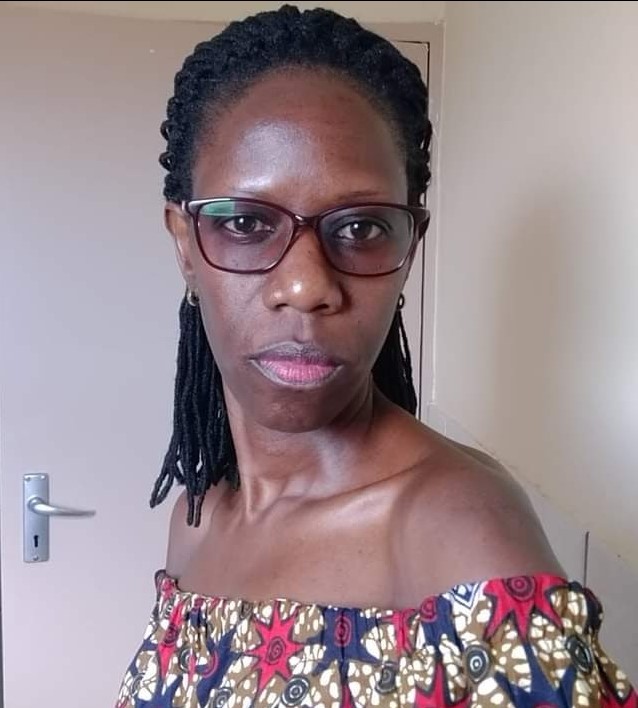
Everyday governments make important decisions that affect the lives of their citizens. People, private institutions and organizations also engage in similar decision-making policies. These decisions are shaped and influenced by many factors and ideas that we generally consider to constitute public policy. This course gives an overview of the major social science approaches, theories, methods and practices that help us to understand public policy. Social science is an umbrella term that refers to the plurality of disciplines that facilitate the study of society. They include anthropology, sociology, economics, psychology, political science, and, in some contexts, history, geography and law. These disciplines cannot be satisfactorily covered in one semester. To strike an acceptable balance between breadth and depth, this course will cover eight key disciplines that inform governmental decisions and public resource allocations: anthropology, sociology, psychology, political science, economics, law, geography and demography. The aim is to outline, for non-social scientists, the key disciplinary approaches that will enable both policy scientists and policy practitioners to contextualize the work they do.
- Teacher: Maureen KUSIIMA
Mr. Nyolonga Colbert
This course covers the social work knowledge and philosophy. Using a historical and comparative analysis approach, the course explores the core knowledge of social work by looking at the development of social work knowledge and how this knowledge influences social work practice. As part of knowledge, the course also explores the social work discourses and influence different social work practice settings. Also, the philosophies of social welfare are explored and examined since they are part of social work knowledge.
- Teacher: Kibirige KASULE
Greetings, everyone, and welcome to SOCW 3126 Social Work Research Design and Management. The best way to reach us is through the e-mail addresses provided or by sending messages via the online class system. If you wish to speak with any of us via phone or WhatsApp, please send an e-mail (mokumu@ucu.ac.ug & cedrick.wabwire2@gmail.com), and we will arrange a time to talk. As a general rule, e-mails received Monday through Friday (not including holidays) will be returned within 48 hours. E-mails received Saturdays, Sundays, and Holidays will be returned by the next business day. If you need technical assistance, please contact the UCU e-learning Help Desk at elearning@ucu.ac.ug or call via mobile at 0795 770 530.
COURSE DOMAIN AND BOUNDARIES
This
course builds on the content covered in Research Methods for Social Work
Practice and provides students with the skills to design and manage program evaluation research. Major topics
include types of evaluation, evaluation design and theory, measurement,
sampling, data collection, ethics, and politics in evaluation, data analysis. Attention is given to the capacity-building
potential of evaluation and its impact on the quality and delivery of social
welfare services to populations-at-risk.
The ability to involve agency and client constituencies in developing,
implementing, and disseminating evaluation efforts is emphasized. Special attention is also given to values,
ethics, social and economic justice, and issues related to ethnicity, culture,
gender, religion, physical or mental disability or illness, age, and national
origin. Students complete an evaluation project in conjunction with an organization
of their choice – preferably their field work site. Students are expected to design and execute
all aspects of the evaluation; identify and critique the empirical evidence
related to the evaluation; and prepare and report project findings and
implications.
Rev. Julius Tabi Izza
Mr. Nyolonga Colbert
Mr. Olekua Jimmy
| Mr Omaal John Drabile |

The course teaches software construction including object-oriented programming and software unit testing. Discusses and illustrates the concepts such as modularization, specification, information hiding, concurrency, abstraction, generics, design patterns, and parameterized unit testing. The purpose of this course is to give the students a solid understanding of modern software construction, and to prepare students to construct high quality programs.

Angukoru Christine
Welcome Students!
This brief introduction provides you with important information about this course. The learning outcomes are designed to equip you with practical approaches for your research project, encourage the formation of a critical analysis, creative thinking and foster individual judgement in the application of research methods. You will also develop skills required in writing research proposals/ reports.
Your full participation in each assignment is mandatory and will contribute towards your final mark. This ensures you lead your own learning process of your research. Please do not hesitate to contact me through the communication channels of the course at any point should you need assistance.- Lecturer: Jeremy WAISWA
- Teacher: Jeremy WAISWA
- Lecturer: Cypliano ARINEITWE
https://youtu.be/y9QNETfADUM?si=c_VirRehvtvt085j
- Teacher: Akilewo KAKOOZA
- Teacher: Stephen KAVUMA LUGUDDE
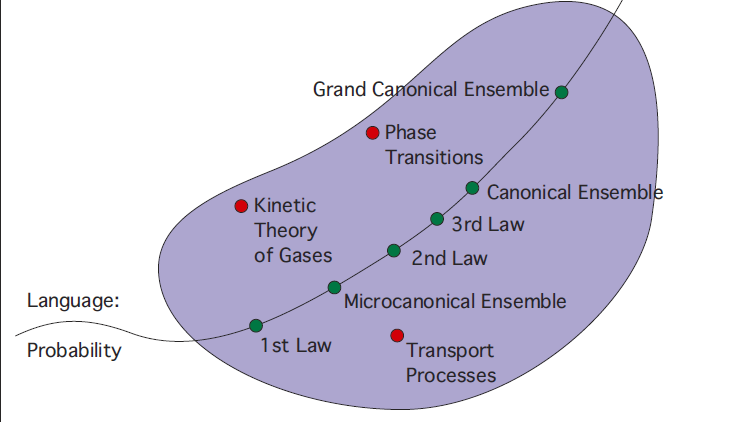
Course Summary:
Statistical Mechanics is a fundamental course that provides students with a comprehensive understanding of the behavior of systems containing a large number of particles. Through lectures, readings, problem-solving exercises, and laboratory sessions, students will explore the theoretical foundations and practical applications of statistical mechanics principles.
The course begins with an introduction to basic concepts such as probability theory, thermodynamic probability, and the principles of classical and quantum statistical mechanics. Students will then delve into statistical thermodynamics, analyzing equilibrium systems and interactions between systems. Classical distribution functions and thermodynamic potentials will be introduced, along with their applications in quantifying thermodynamic properties.
In the latter part of the course, students will explore quantum statistics, examining the behavior of quantum systems and deriving Maxwell-Boltzmann, Fermi-Dirac, and Bose-Einstein statistics. Through a combination of theoretical discussions and hands-on applications, students will develop analytical, problem-solving, and critical thinking skills essential for success in scientific and technical fields.
By the end of the course, students will have gained a solid foundation in statistical mechanics and its applications across various disciplines. They will be equipped with the knowledge and skills necessary to analyze complex systems, solve practical problems, and contribute to advancements in research and industry.
Mr. Ogen M Cosmas
Mr. Asiku John
Mr. Andabati Dan Robert
- Lecturer: Sabitti Gonza
- Teacher: Veronica NAMULONDO
Mr. Vita Patrick
This course unit introduces students to pressing contemporary issues affecting society and church’s response.
- Teacher: Denis RUHAMA
Angukoru Christine
- Teacher: Mary Grace NAKATE
Welcome to this course of African History since 1800, that is the foundation for all the different History courses taught at university. It is a course that analyses all major events in Africa since the Late Stone or the complete evolution process. Focus is mainly on all the historical events on the African continent that have shaped Africa today in the post-independence. The major historical events are arranged in a historical order, also known as chronological (from the earliest events to the most recent ones).
Mr. Munduga Muzamil
- Teacher: Lovincer KATANA

Library http://library
Framework 2021.
- Teacher: KASOZI Brian
- Teacher: Eleanor Ithungu
- Teacher: Rev. Dr. Jessica Hughes
- Teacher: J Kitayimbwa
- Teacher: Christa kyomya
- Teacher: Joel MASAGAZI
- Teacher: Dr. Olivia Nassaka Banja(Mrs)
This is for UIS interns from FoST for the year 2021
- Teacher: Nixon Kamugisha
- Teacher: Aggrey MBOGO
- Teacher: Amos T. NUWASIIMA
- Teacher: Son Twongyirwe
Rev. Ruhama Dennis Onzima
- Teacher: Gilbert AFEMA
Greeting I would like to get in touch with All participant of Understanding the New testament. Please Get in touch as soon as possible.
WhatsApp number is 0779324405
UNDERSTANDING THE OLD TESTAMENT
Cities in Developing countries face the challenge of rapid urbanization without growth, which results in stuntedness & inequality. Urban Development course enables students to actively analyze the urban development context & issues to identify needs, potential & opportunities for balanced urban growth. The course intends to equip students with knowledge, skills, and attitudes for promoting sustainable urbanization. Refer to the SDG 11 on sustainable cities. The picture below is taken from informal Kampala with the formal city on the skyline.

Mrs. Ojobiru Alice
This course unit will provide you with theoretical and practical knowledge about water quality, water vulnerability, water pollution control, and water treatment
The course will enable you to make informed decisions about the treatment and disposal of effluents, and the protection of water sources, and you will be able to evaluate the operation and control of water treatment plants.
Course Objectives
To ensure that students are able:
- Objective 1: Describe the concept of the water cycle (hydrologic cycle) and how water moves from one compartment to another
- Objective 2: Assess the vulnerabilities of water sources and the sources of pollution in the water cycle
- Objective 3: Analyze water quality parameters in the laboratory and field and explain what the results of water quality analyses mean
- Objective 4: Apply hands-on-skills and experience in water quality monitoring
- Objective 4: Apply hands-on-skills and experience in water quality monitoring
- Objective 5: Develop and use water safety plans
- Teacher: Rodgers TAYEBWA
Ajidiru Hope Sally
Good afternoon class,
Can we please get ready for our class slated for 4pm? We are going to look at Elements of Writing.
- Teacher: Lilian Lyavaala

